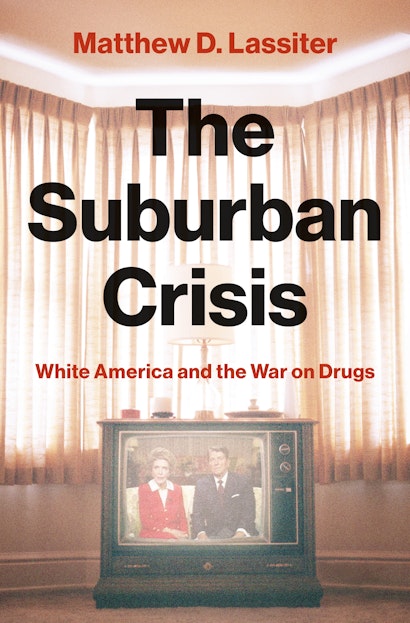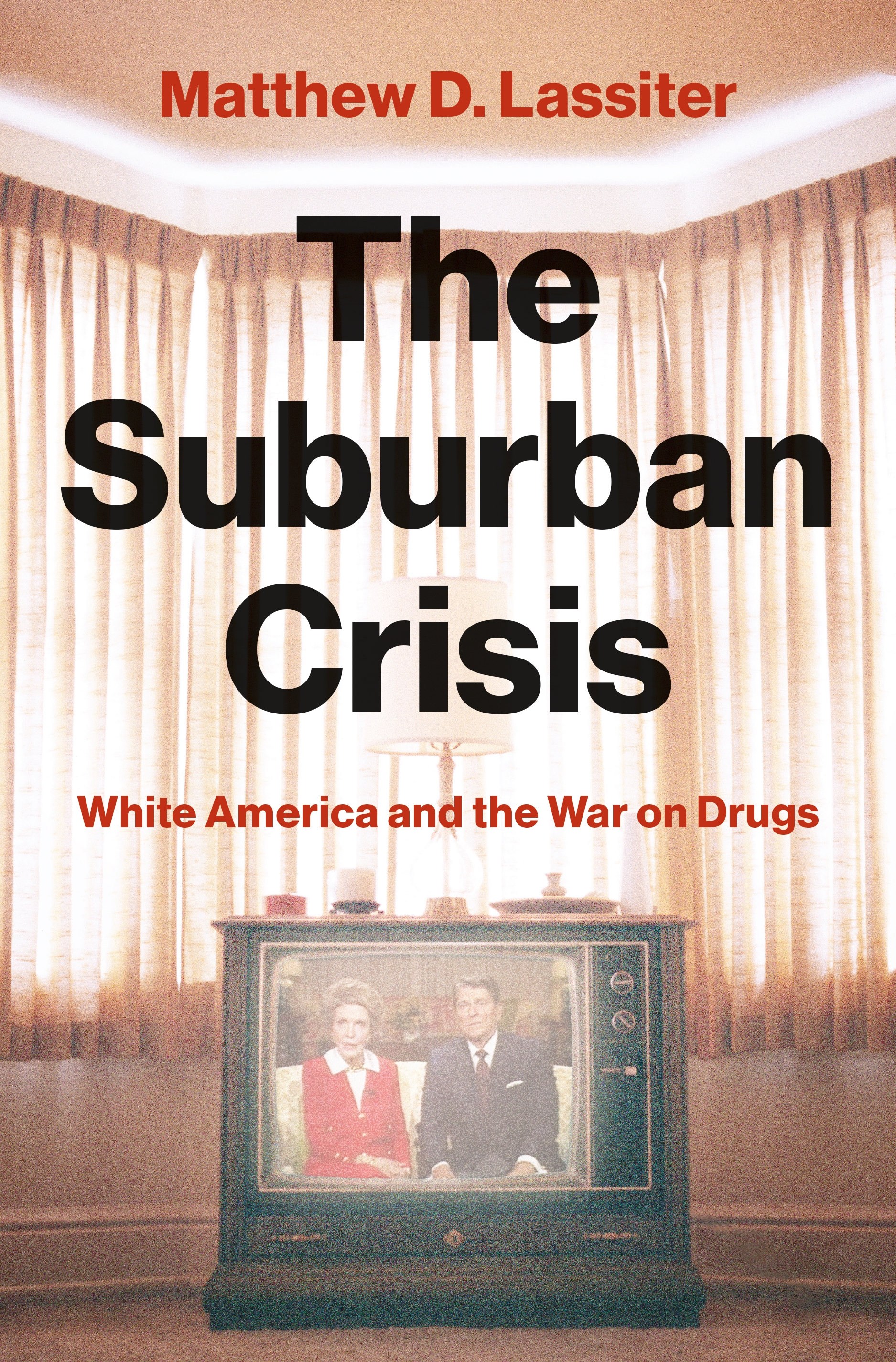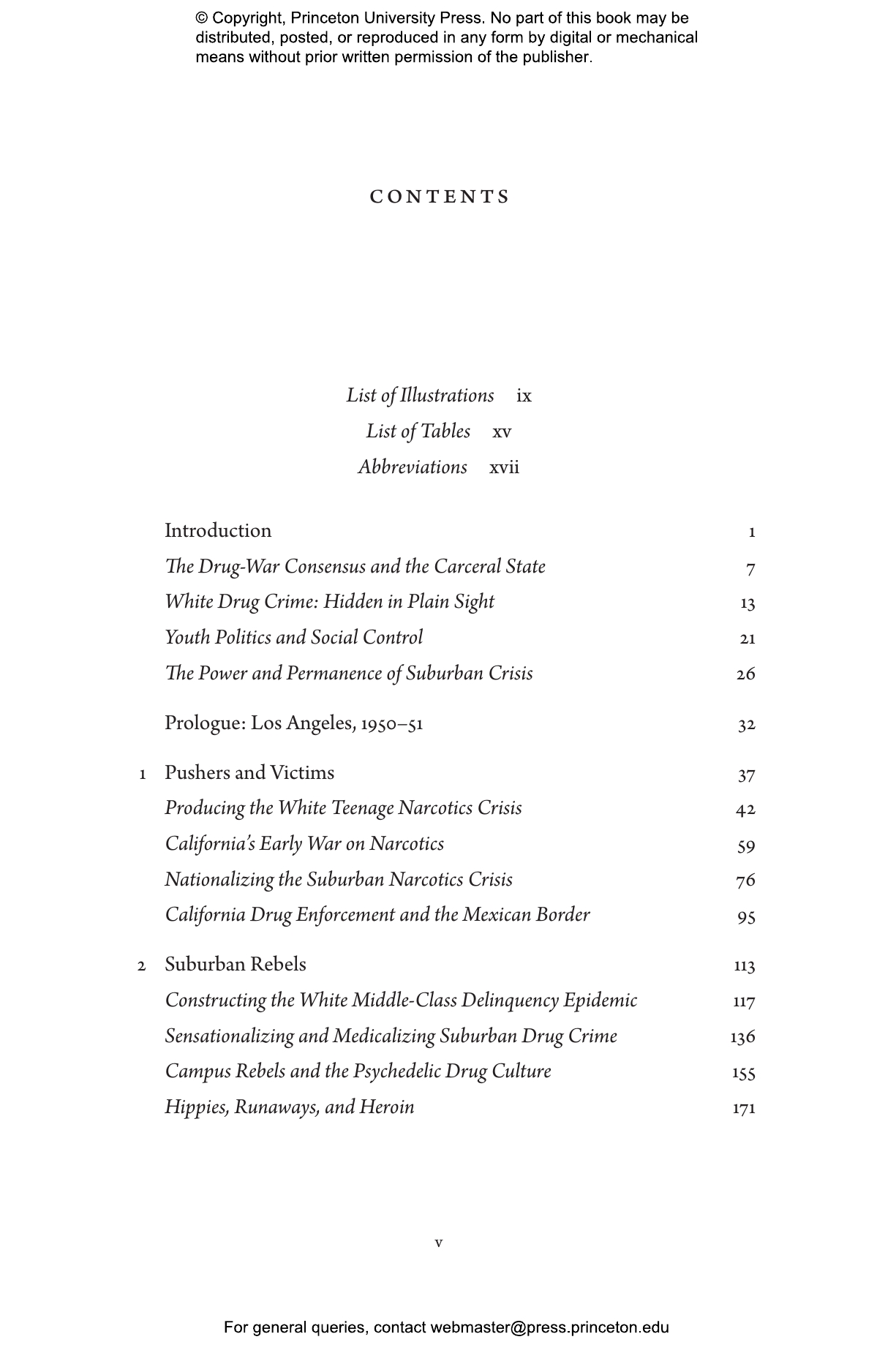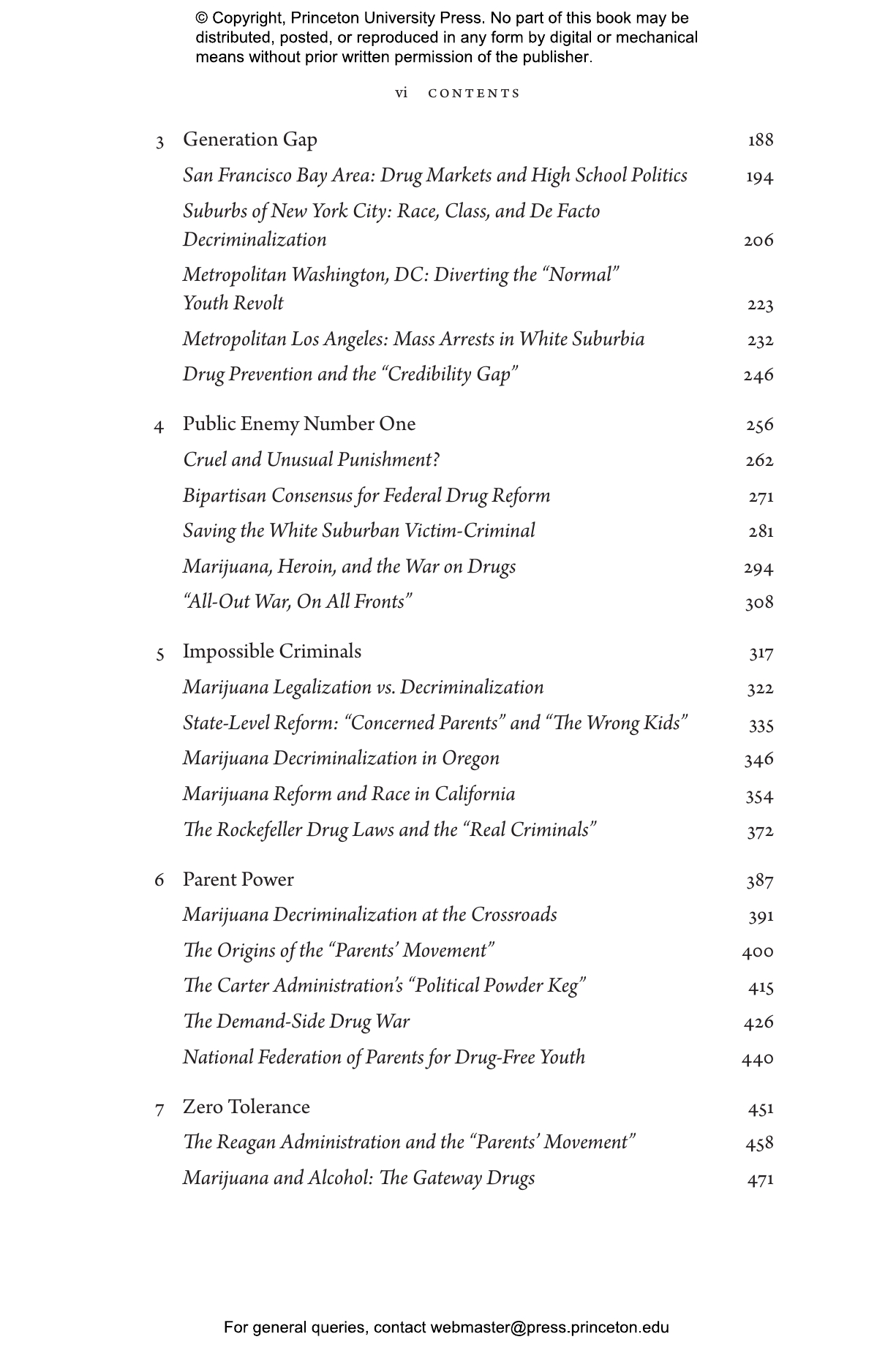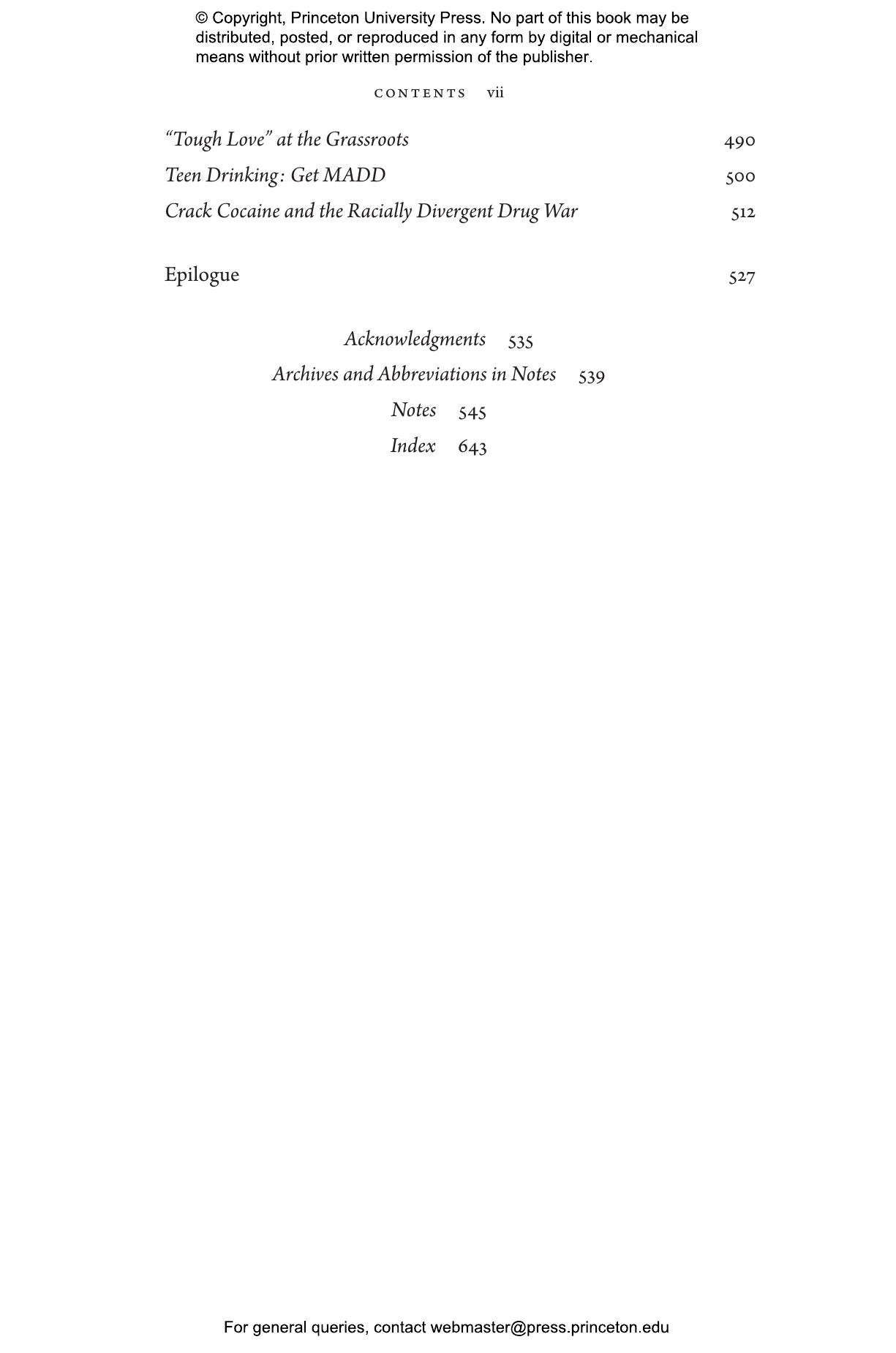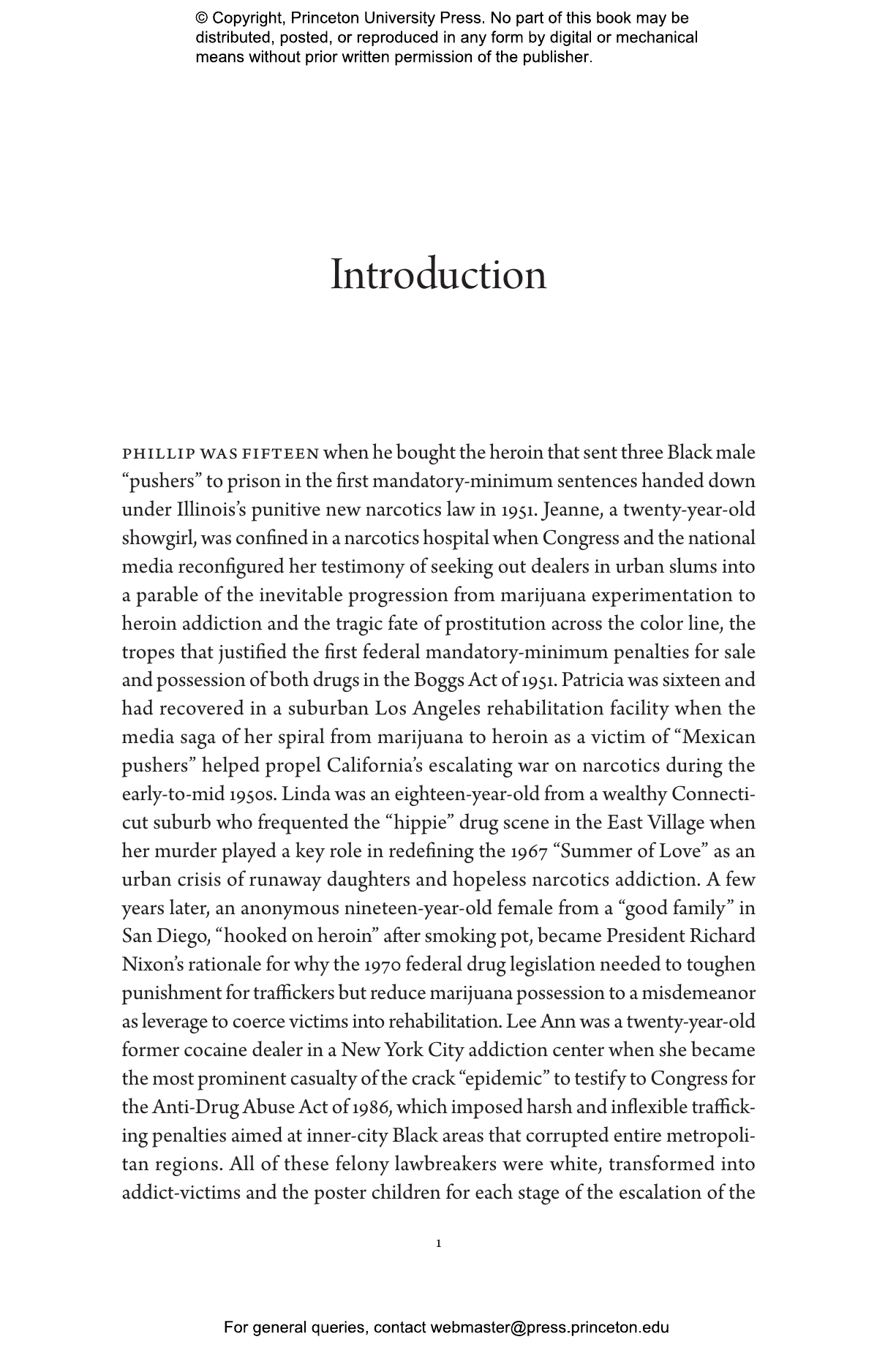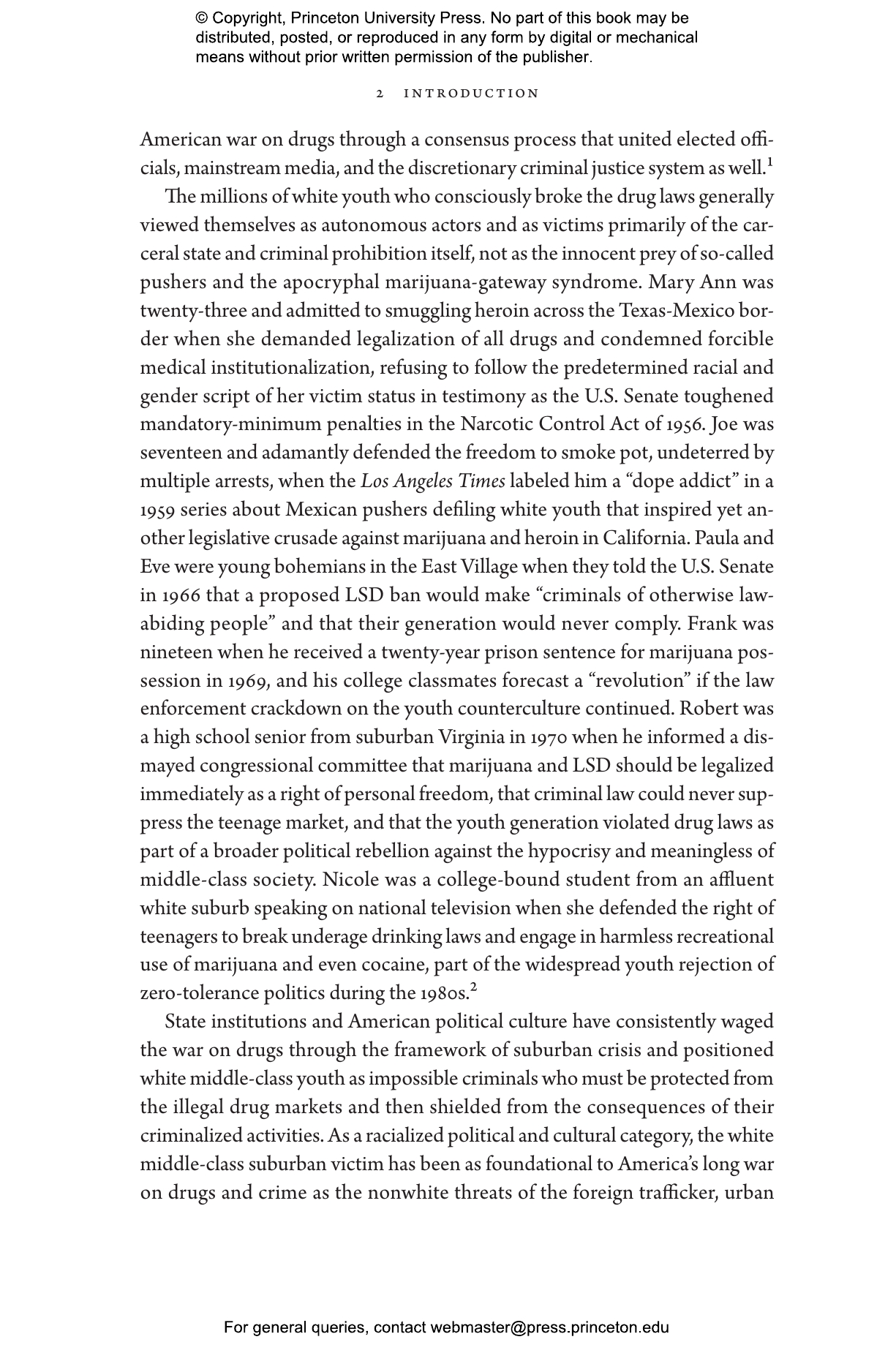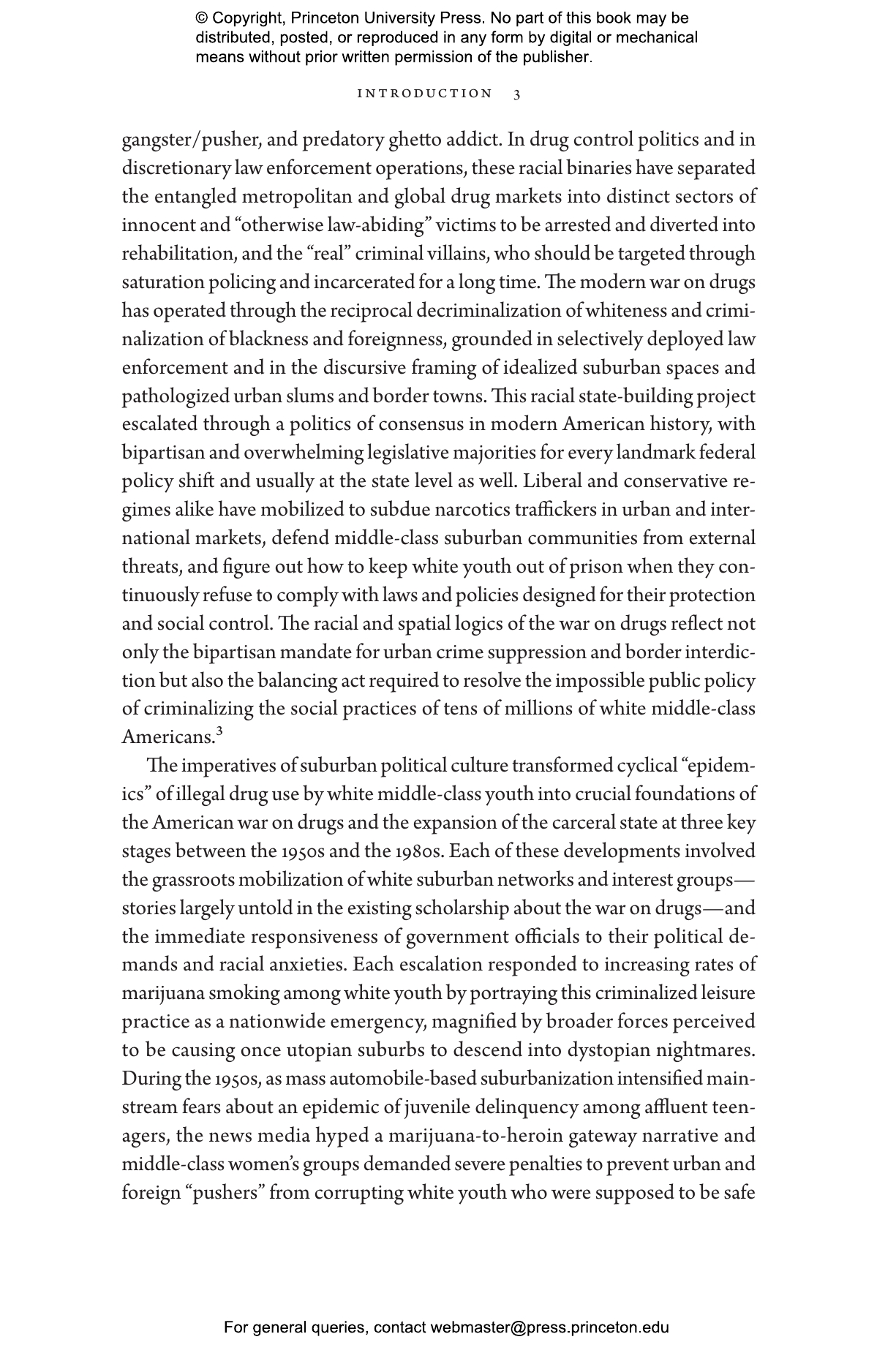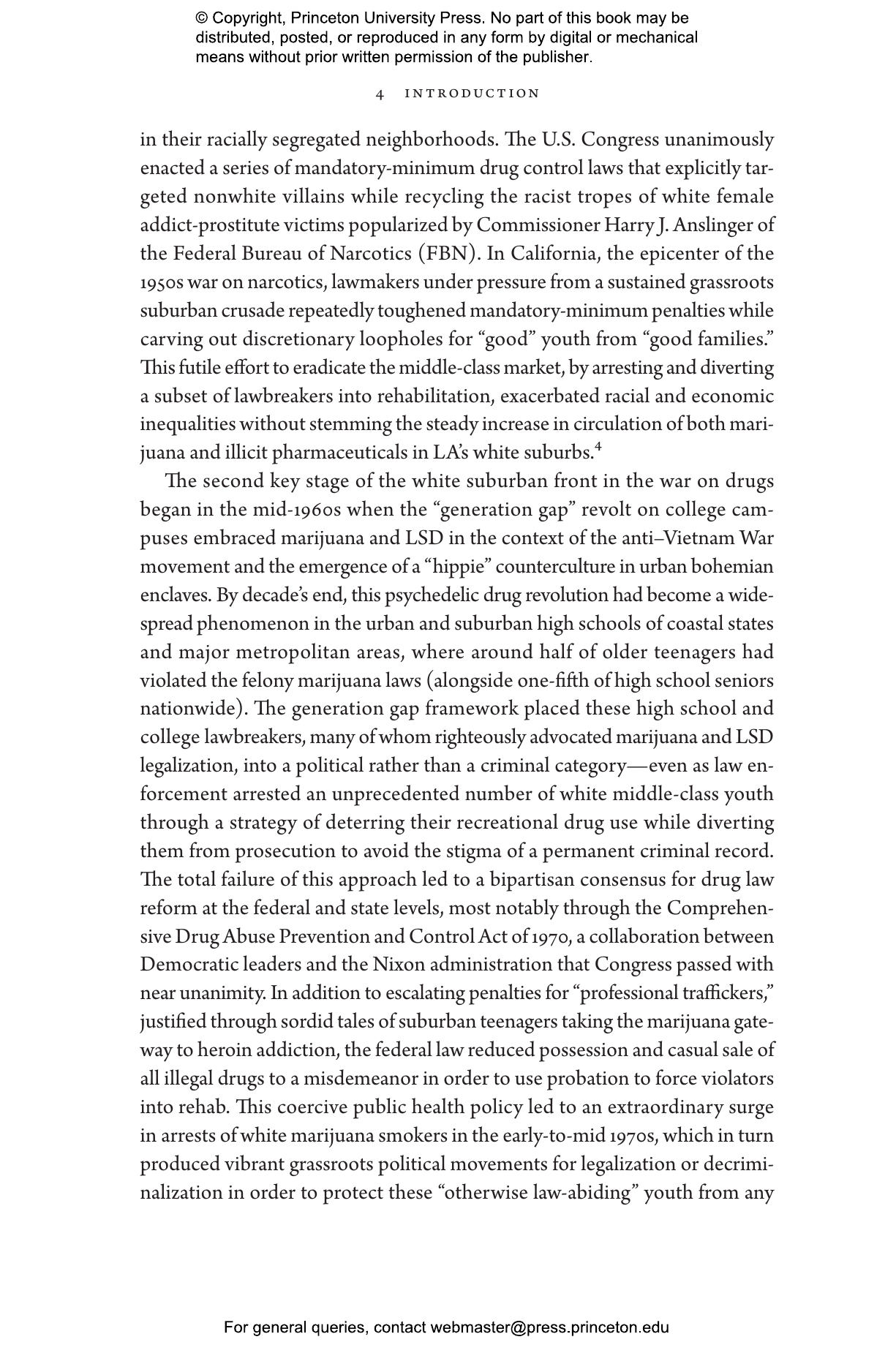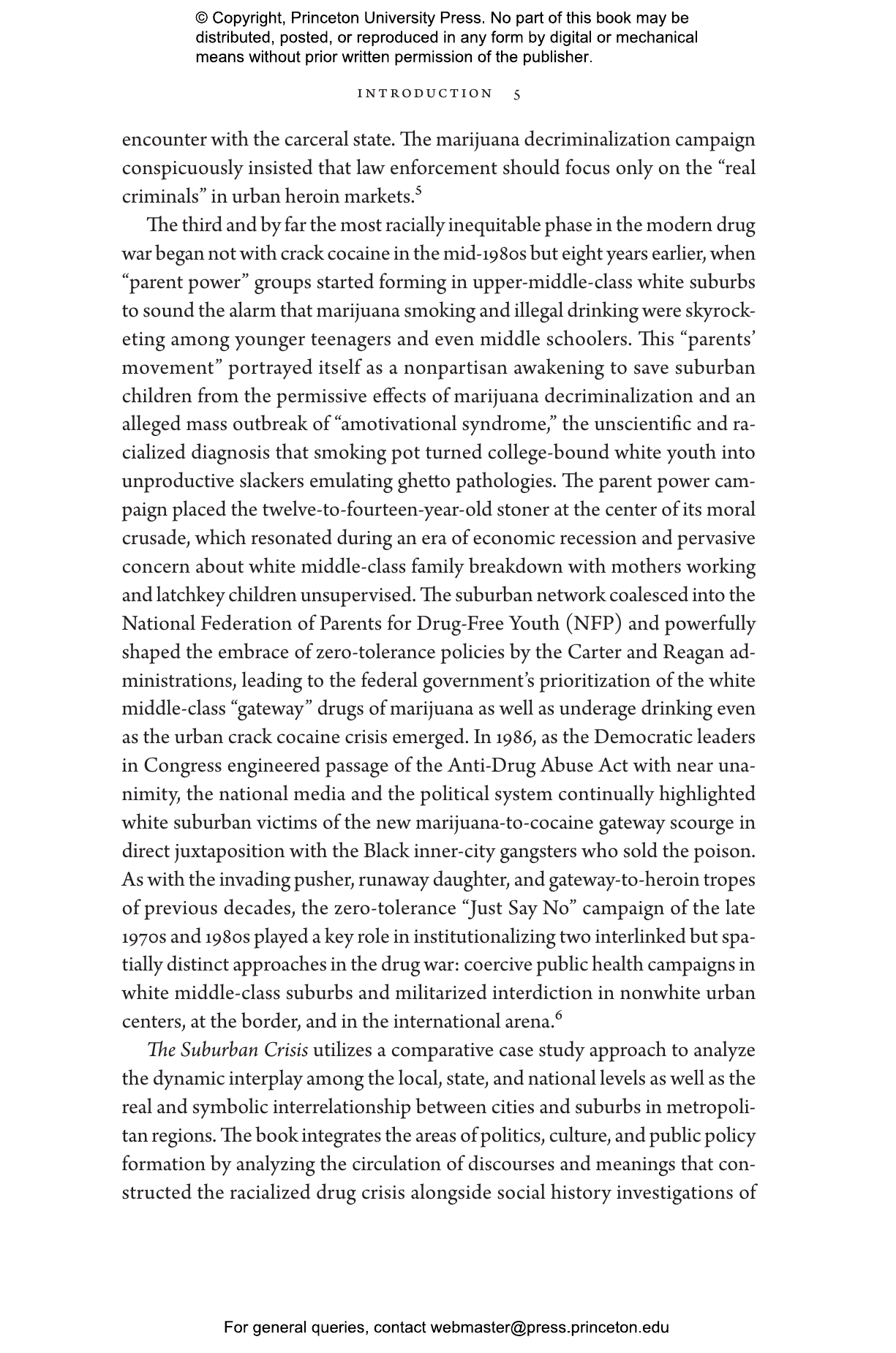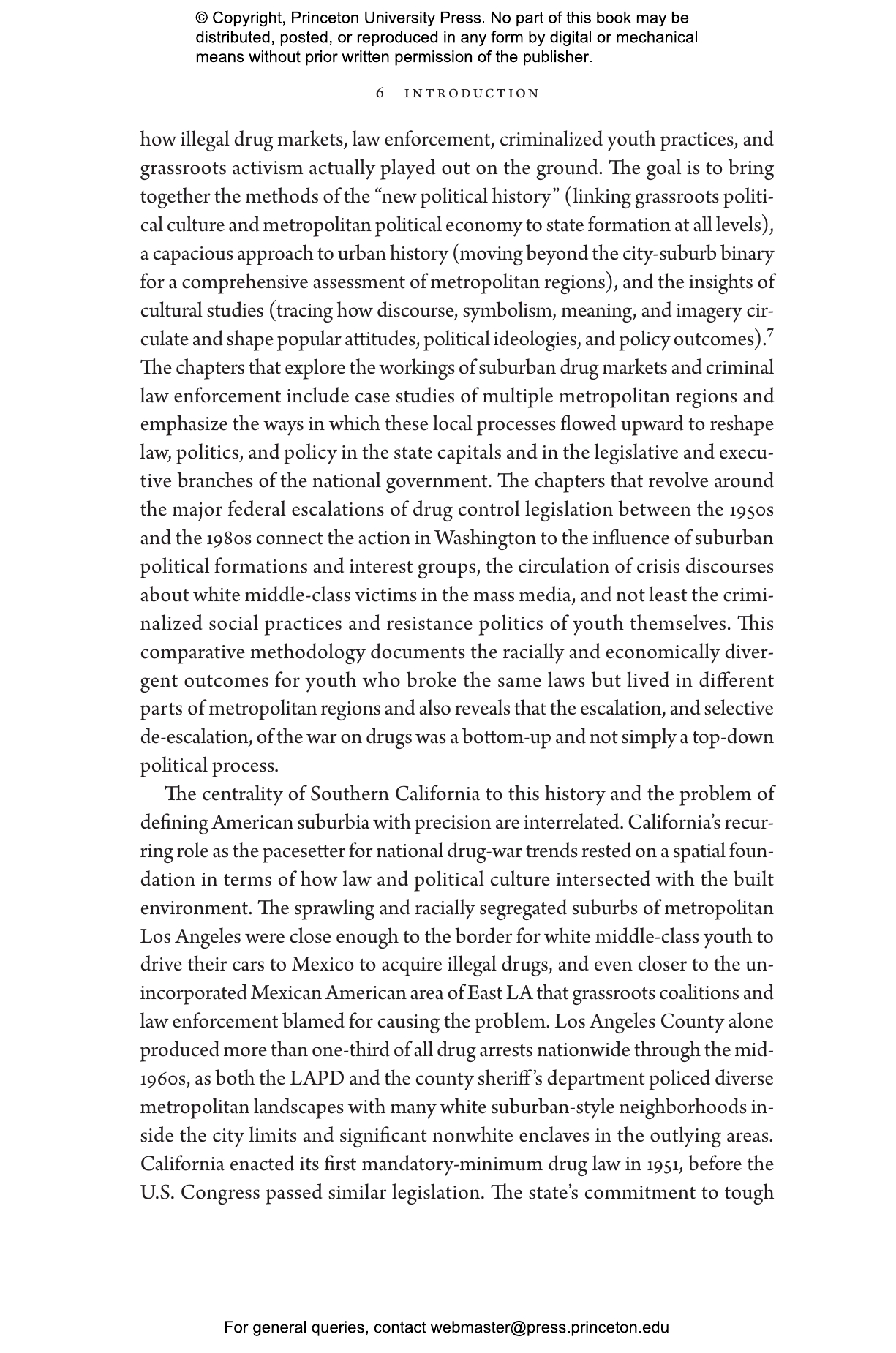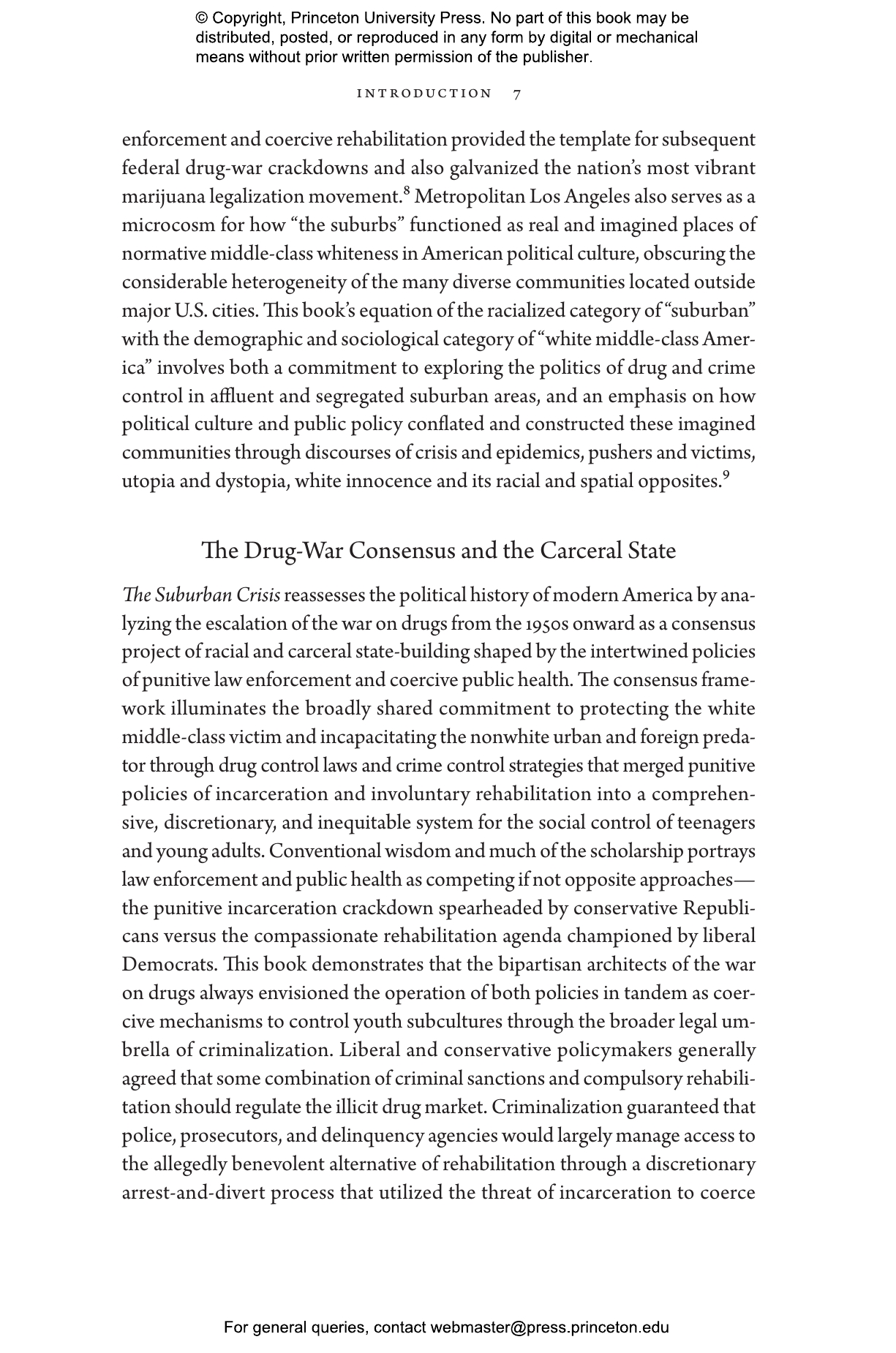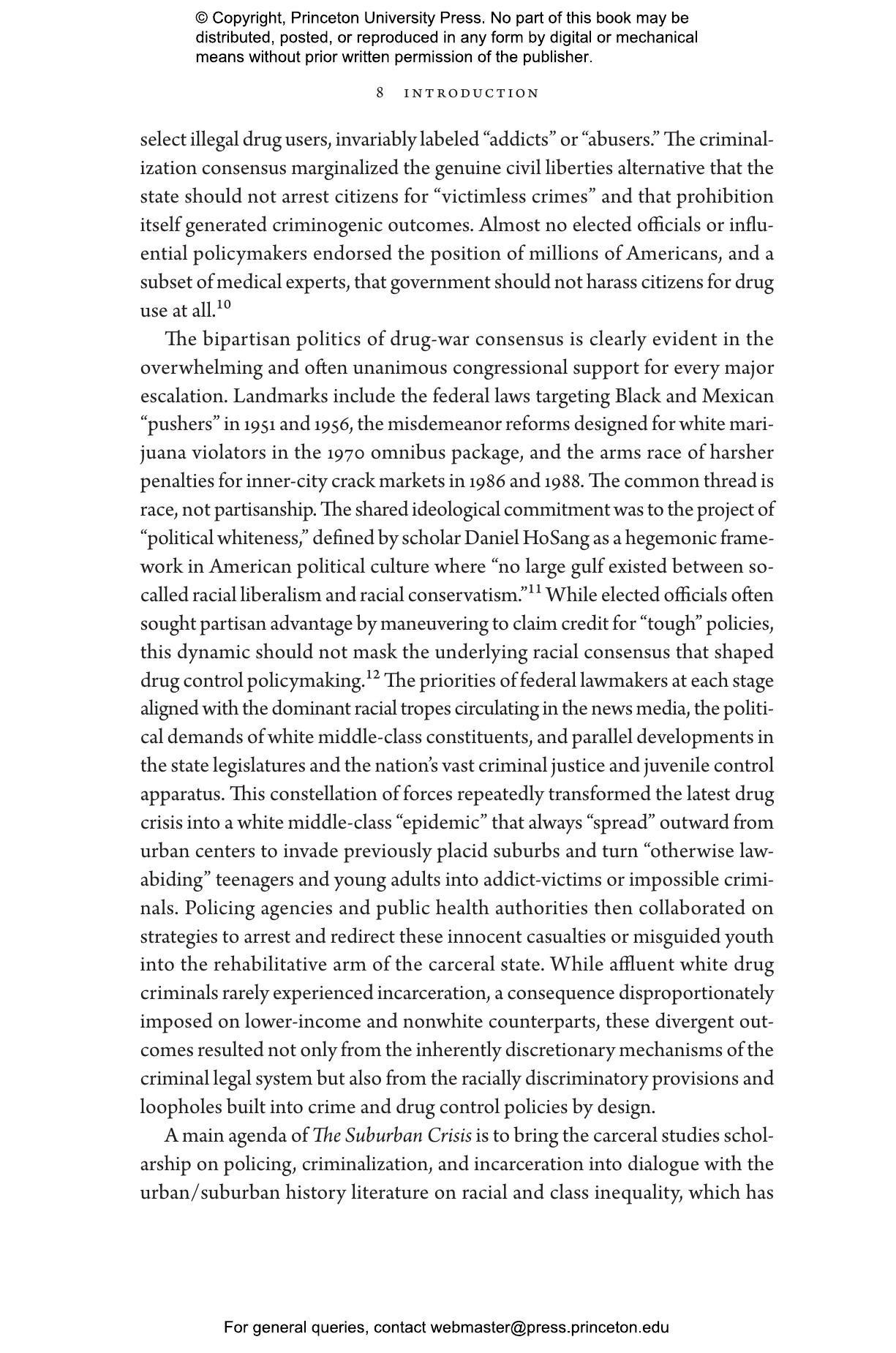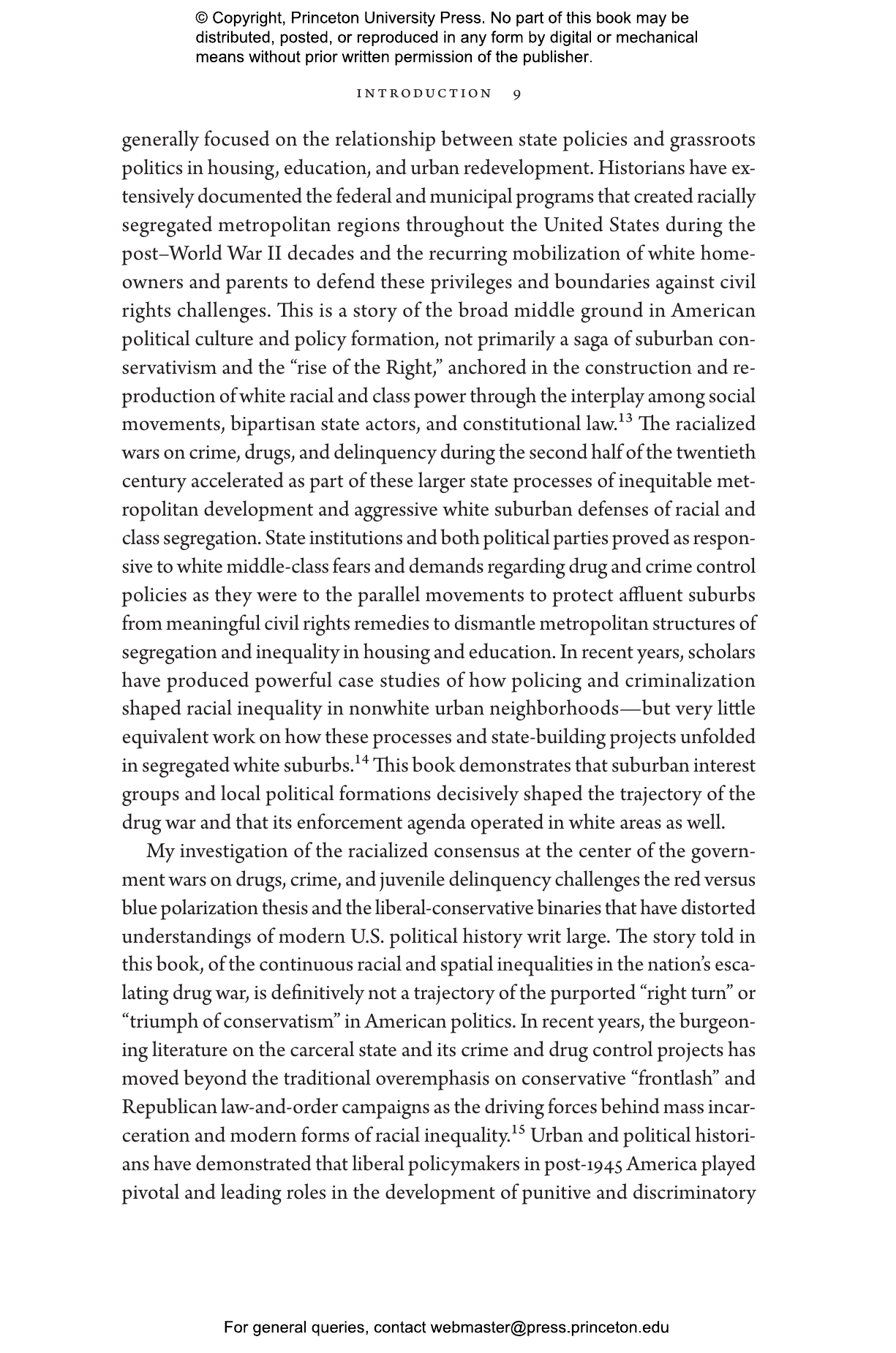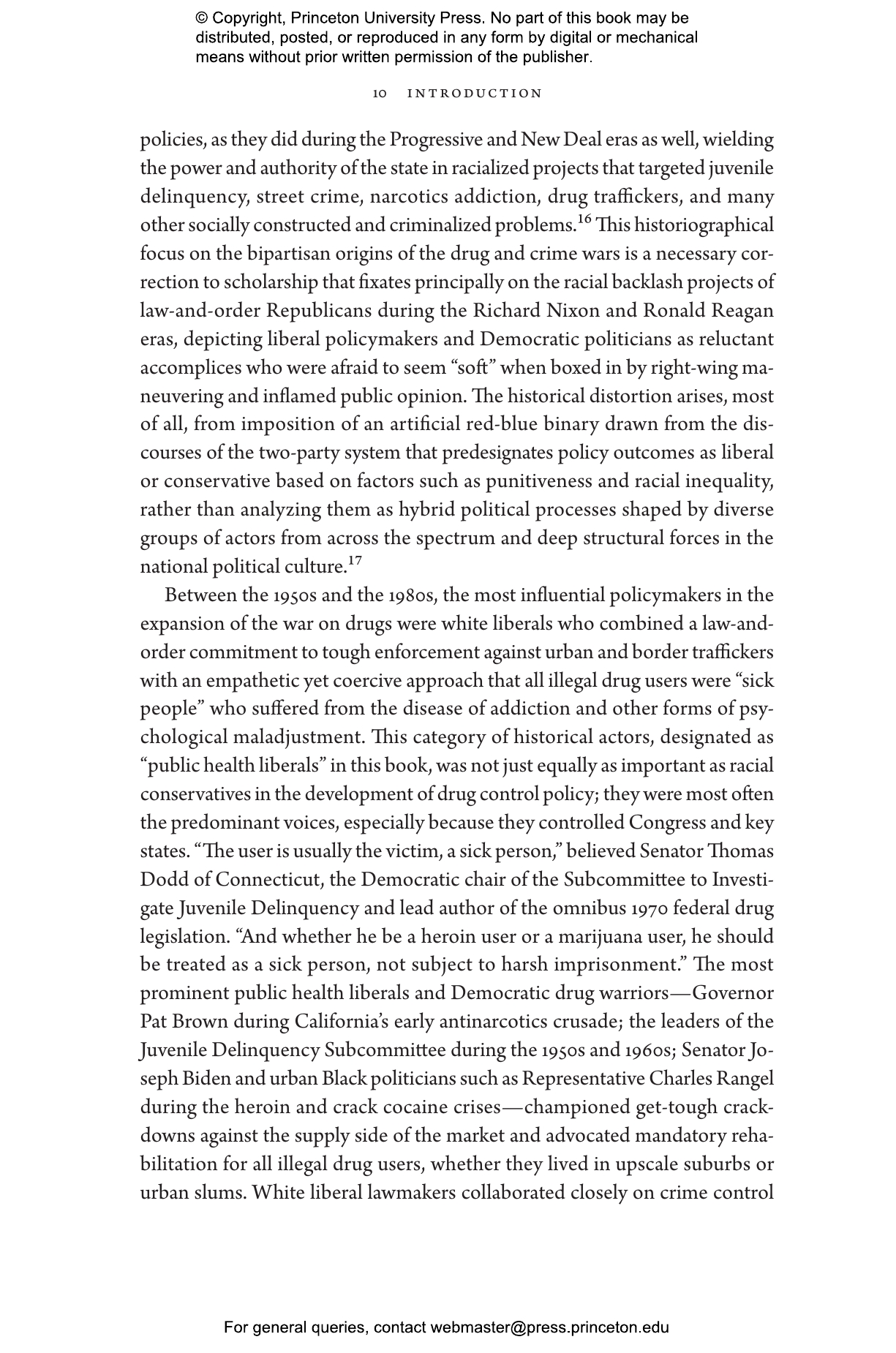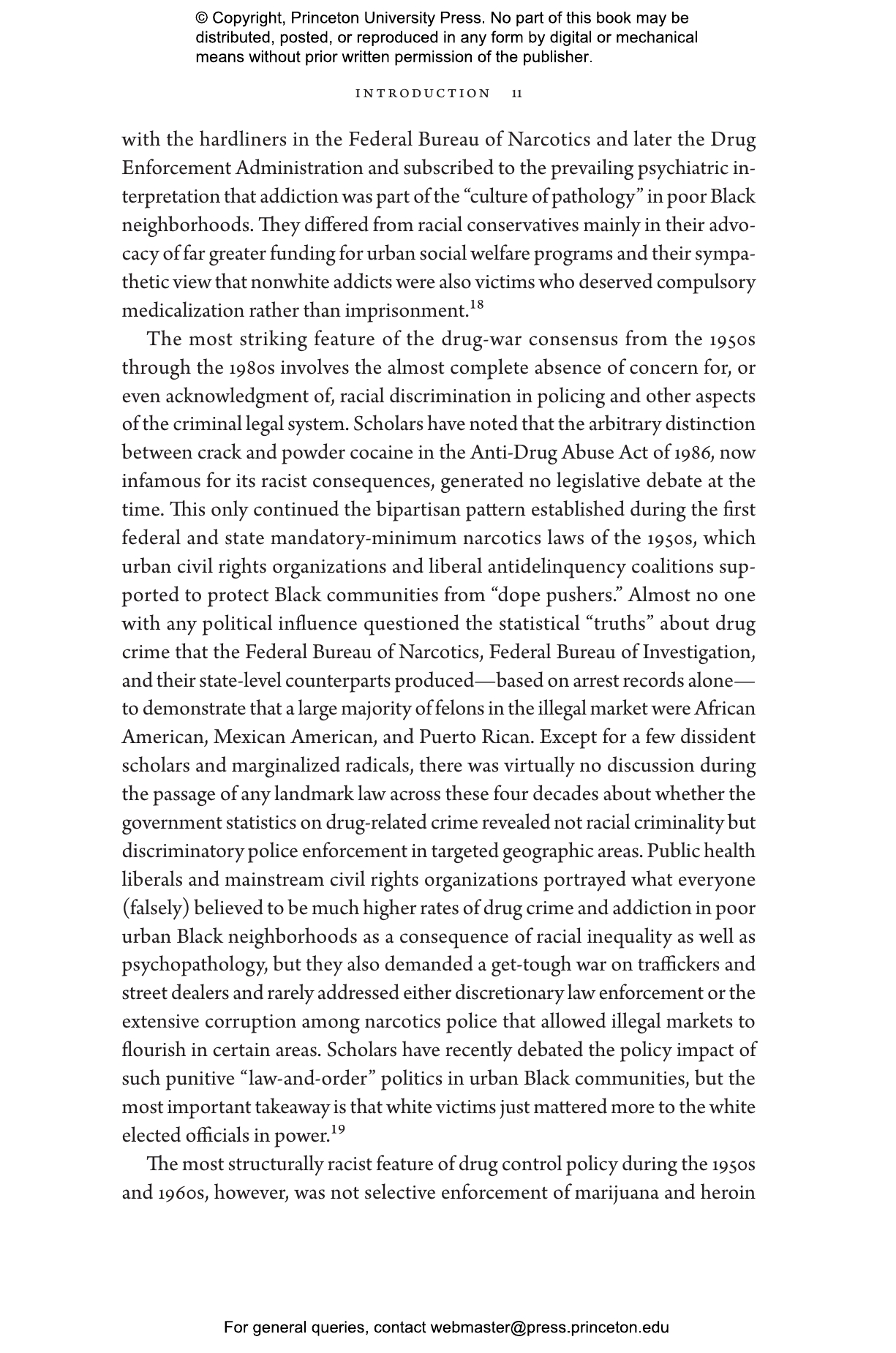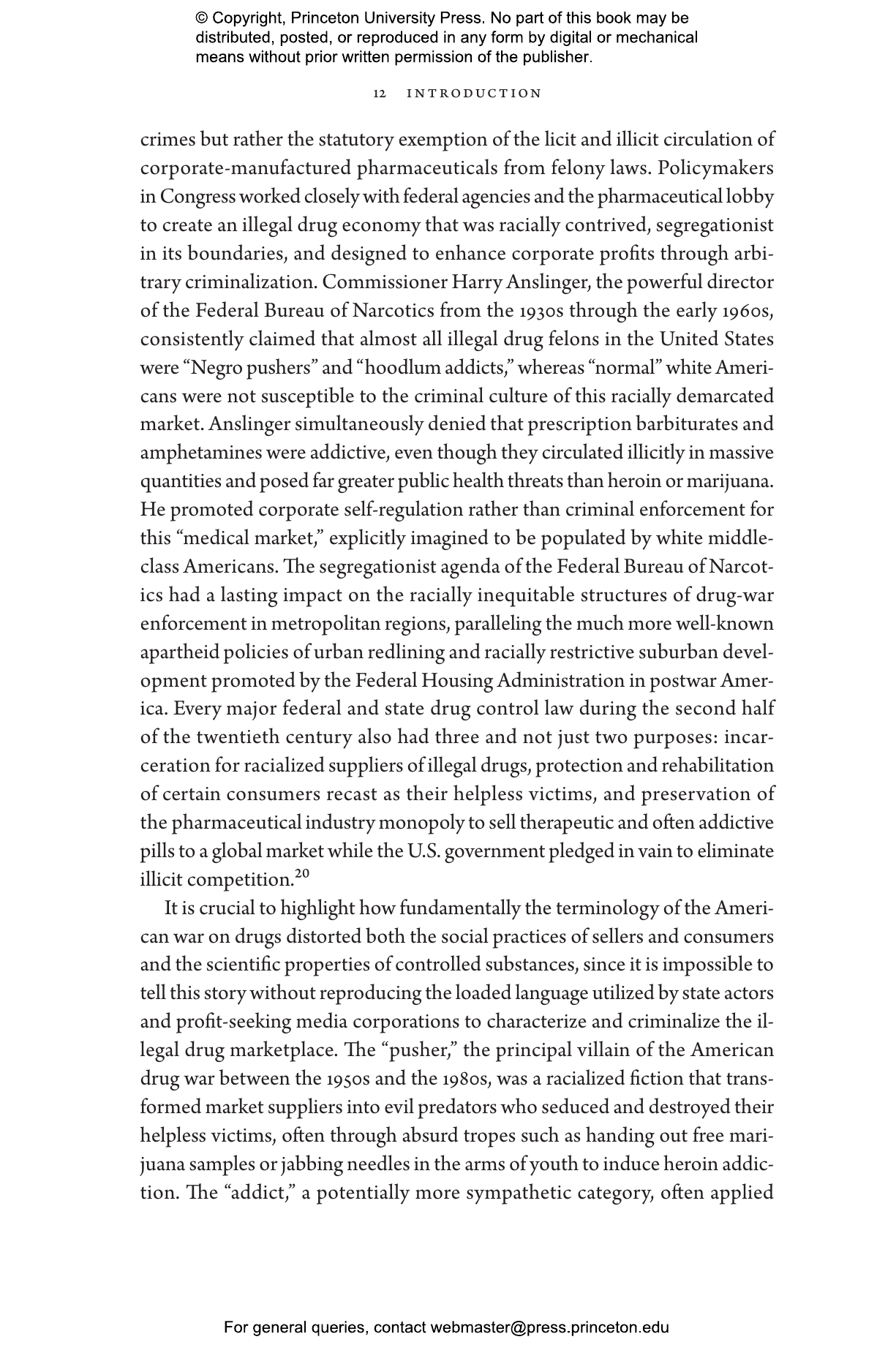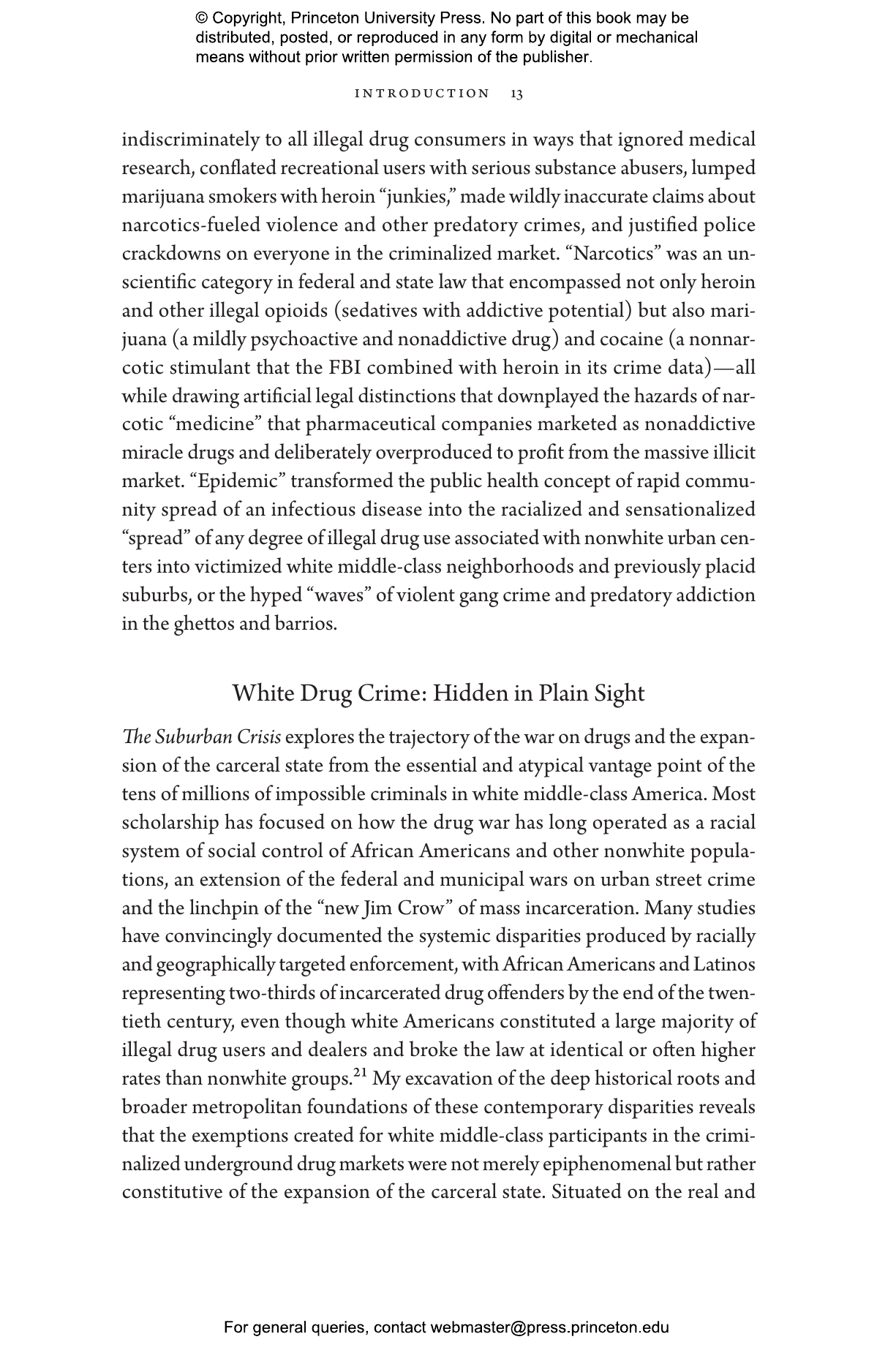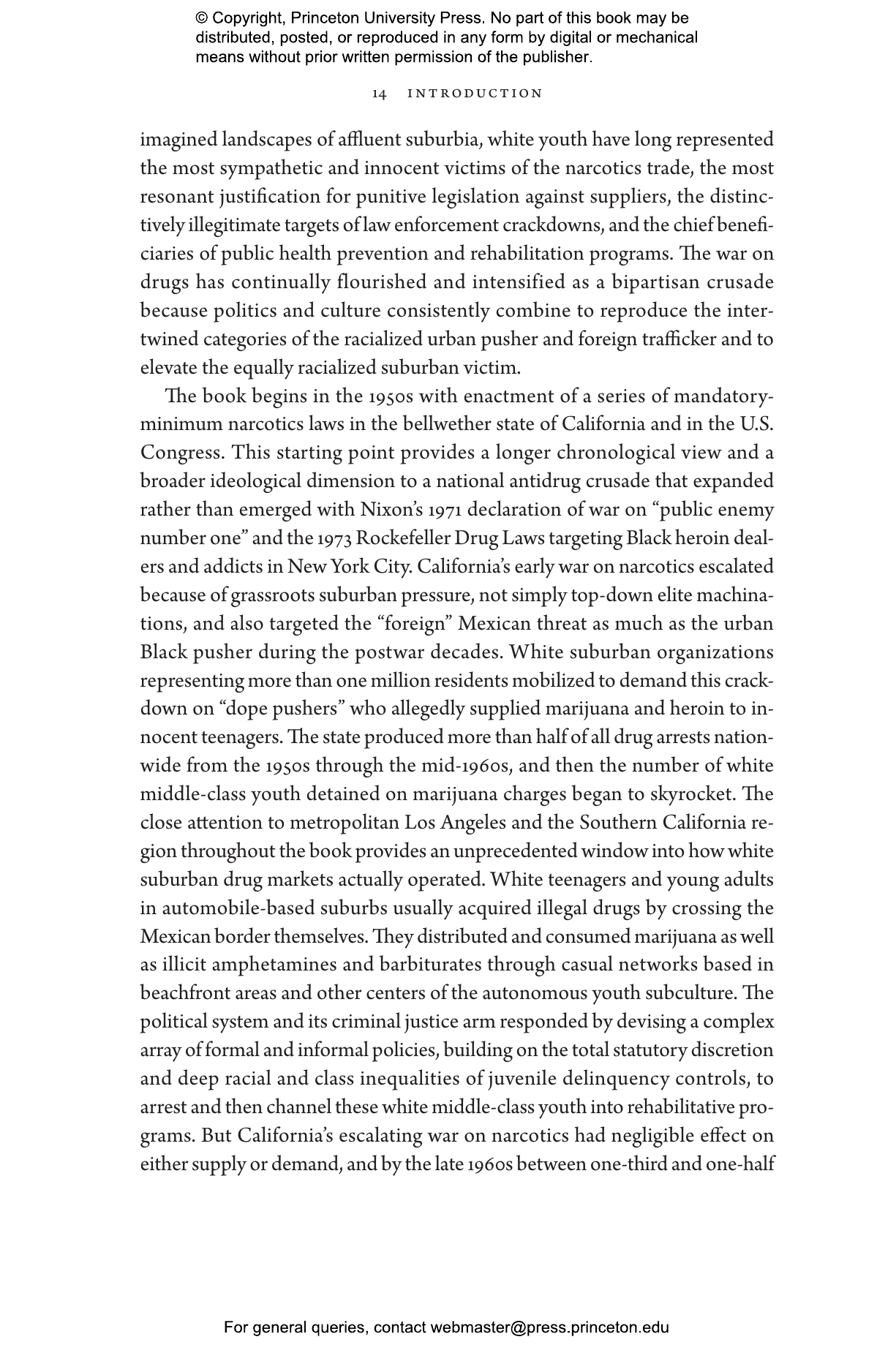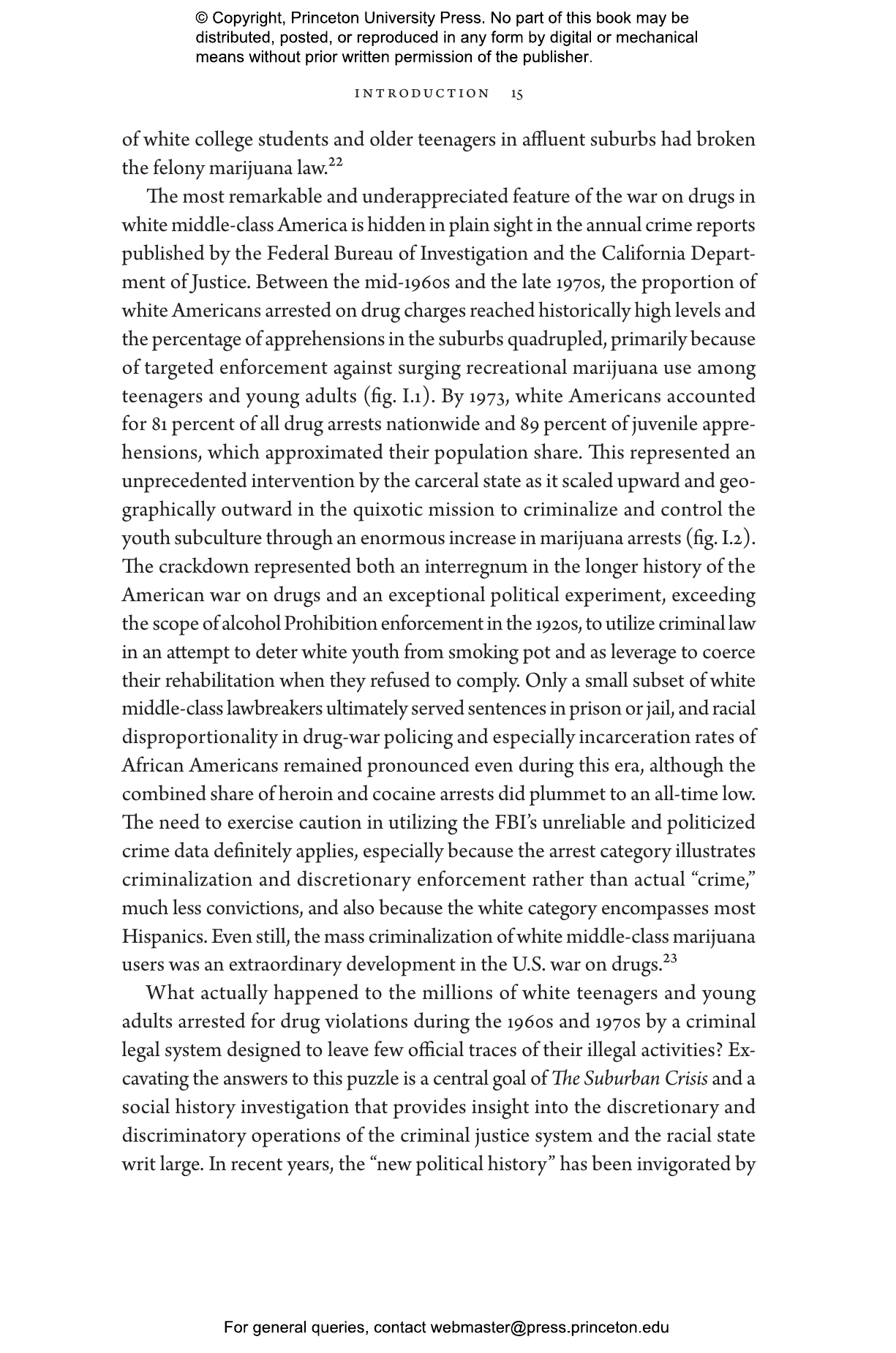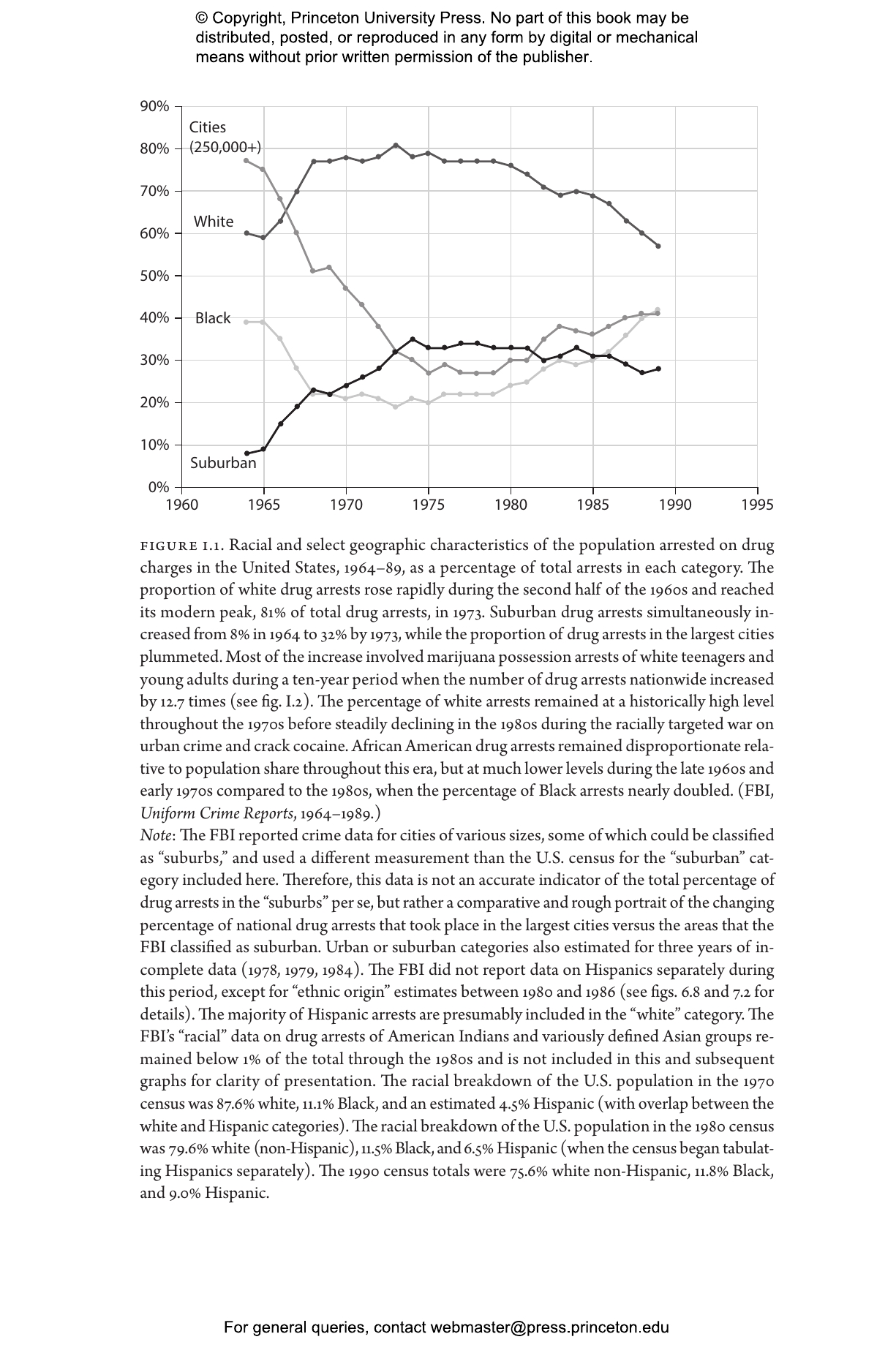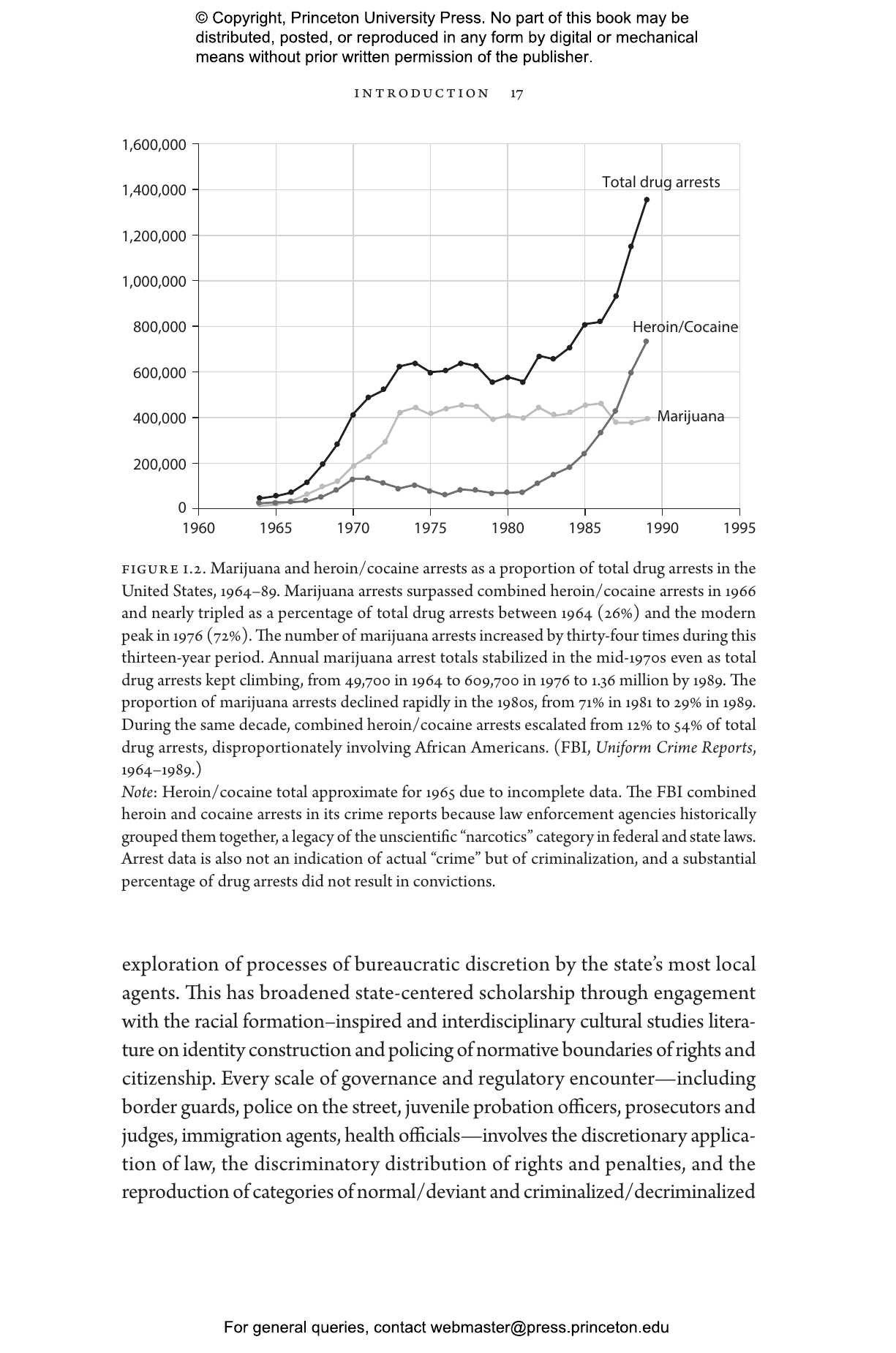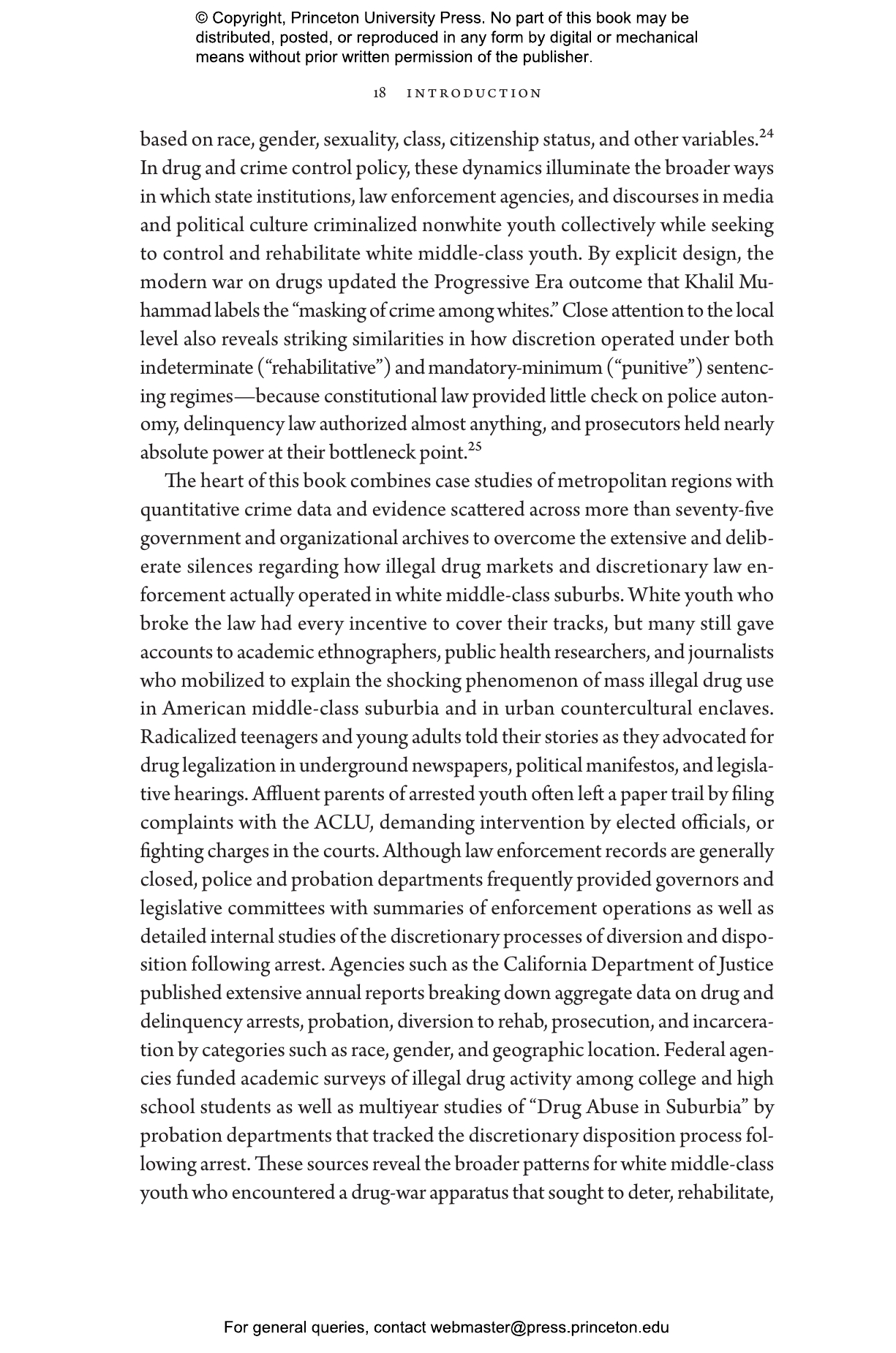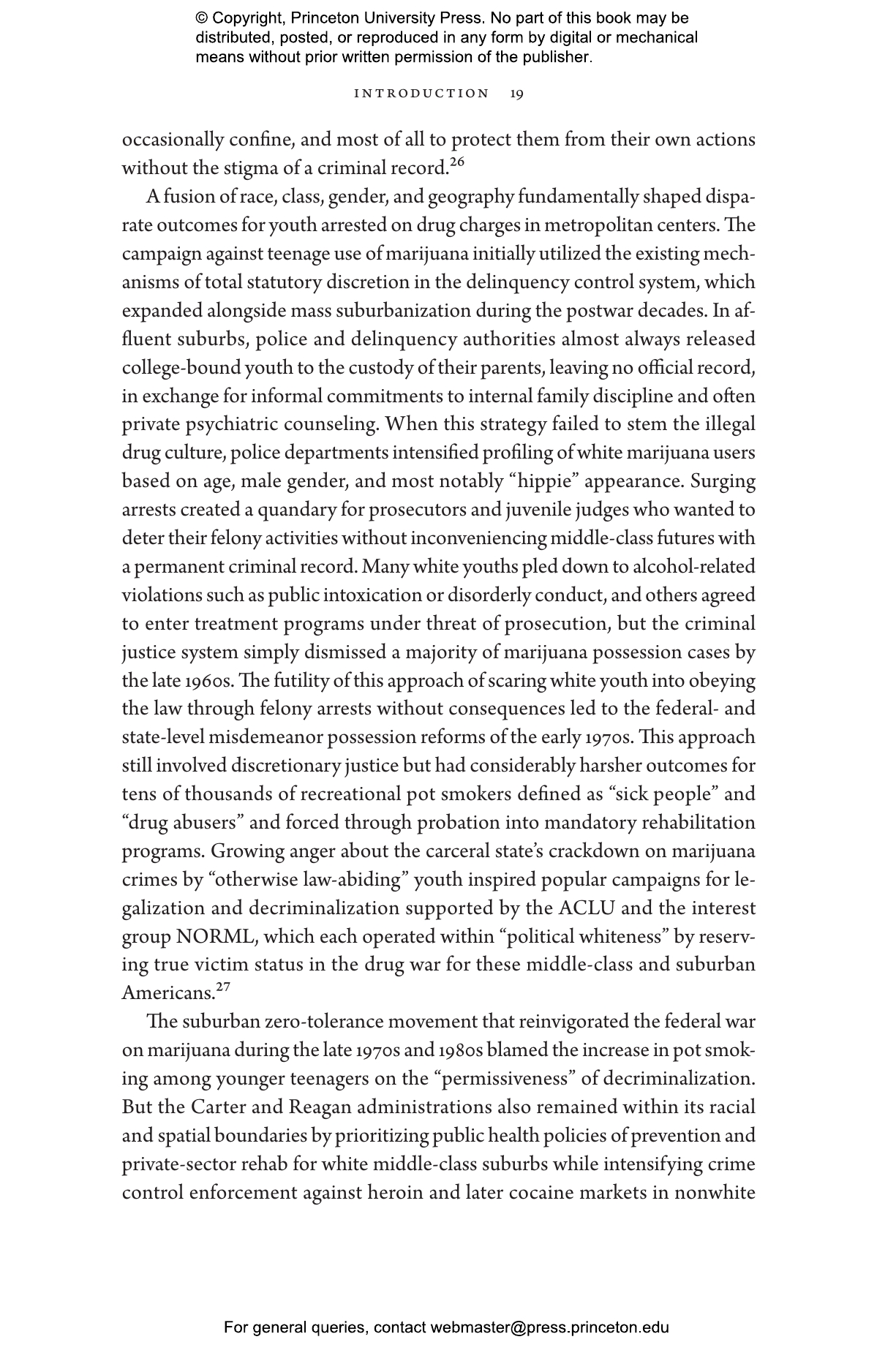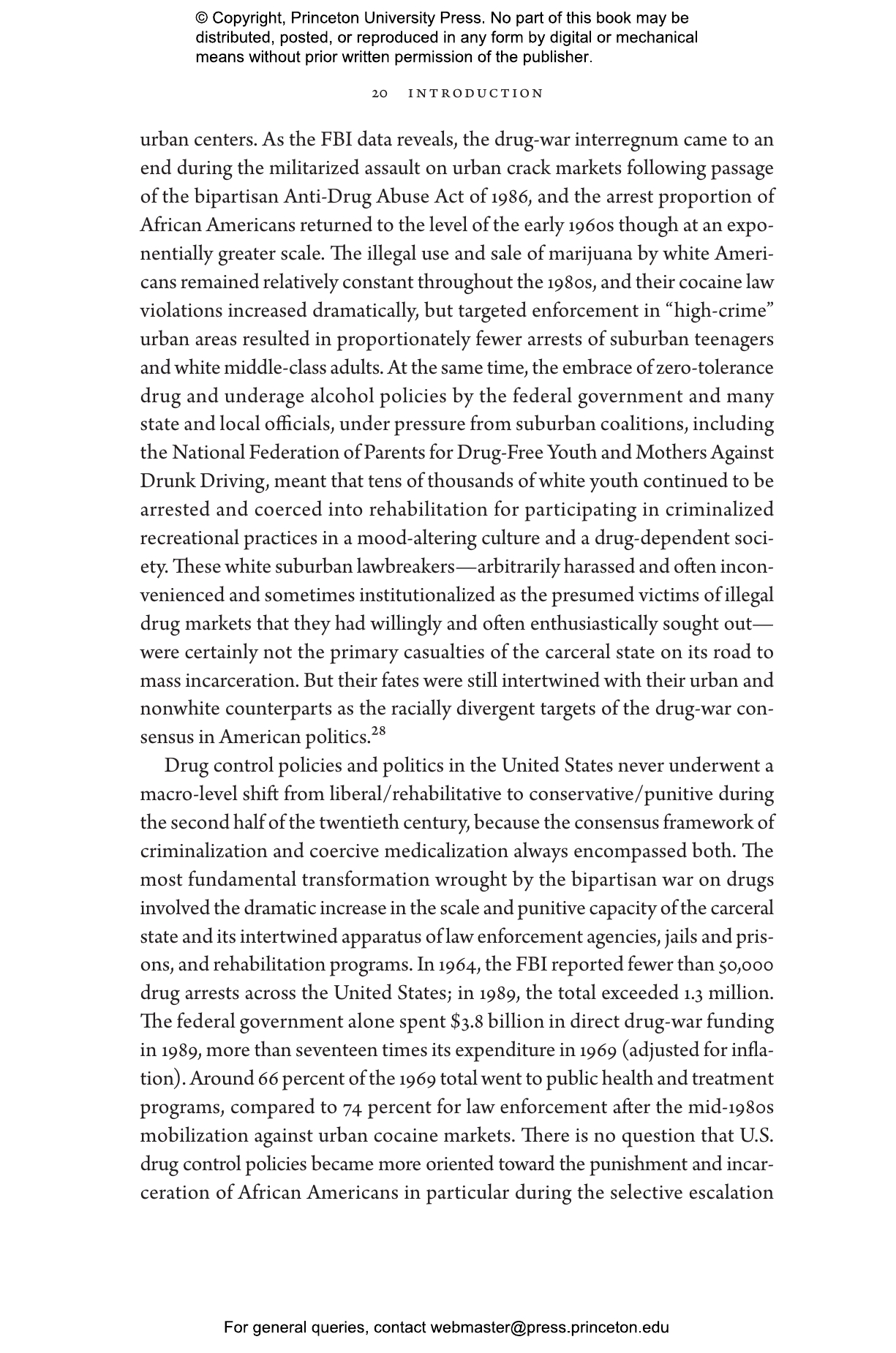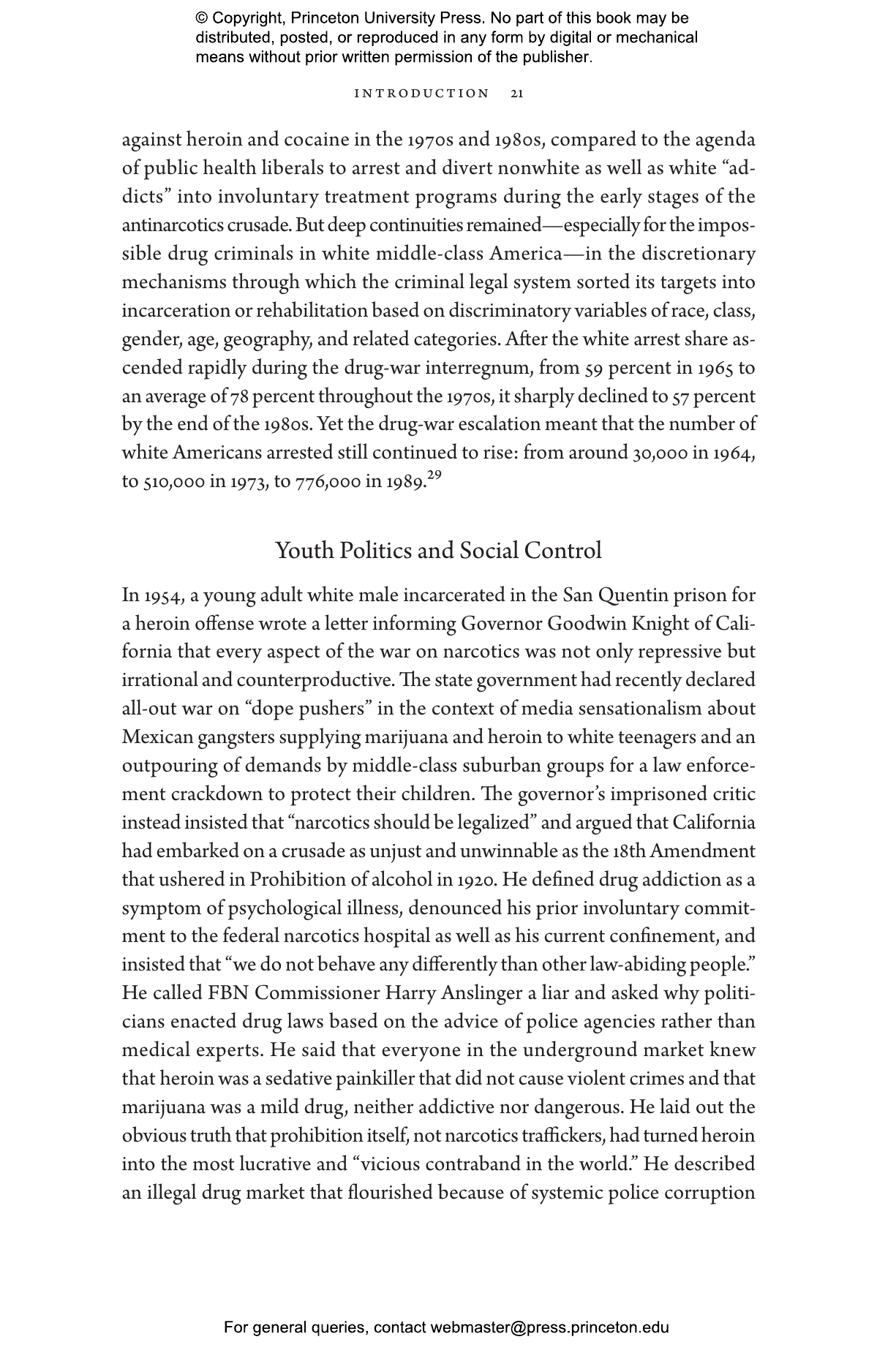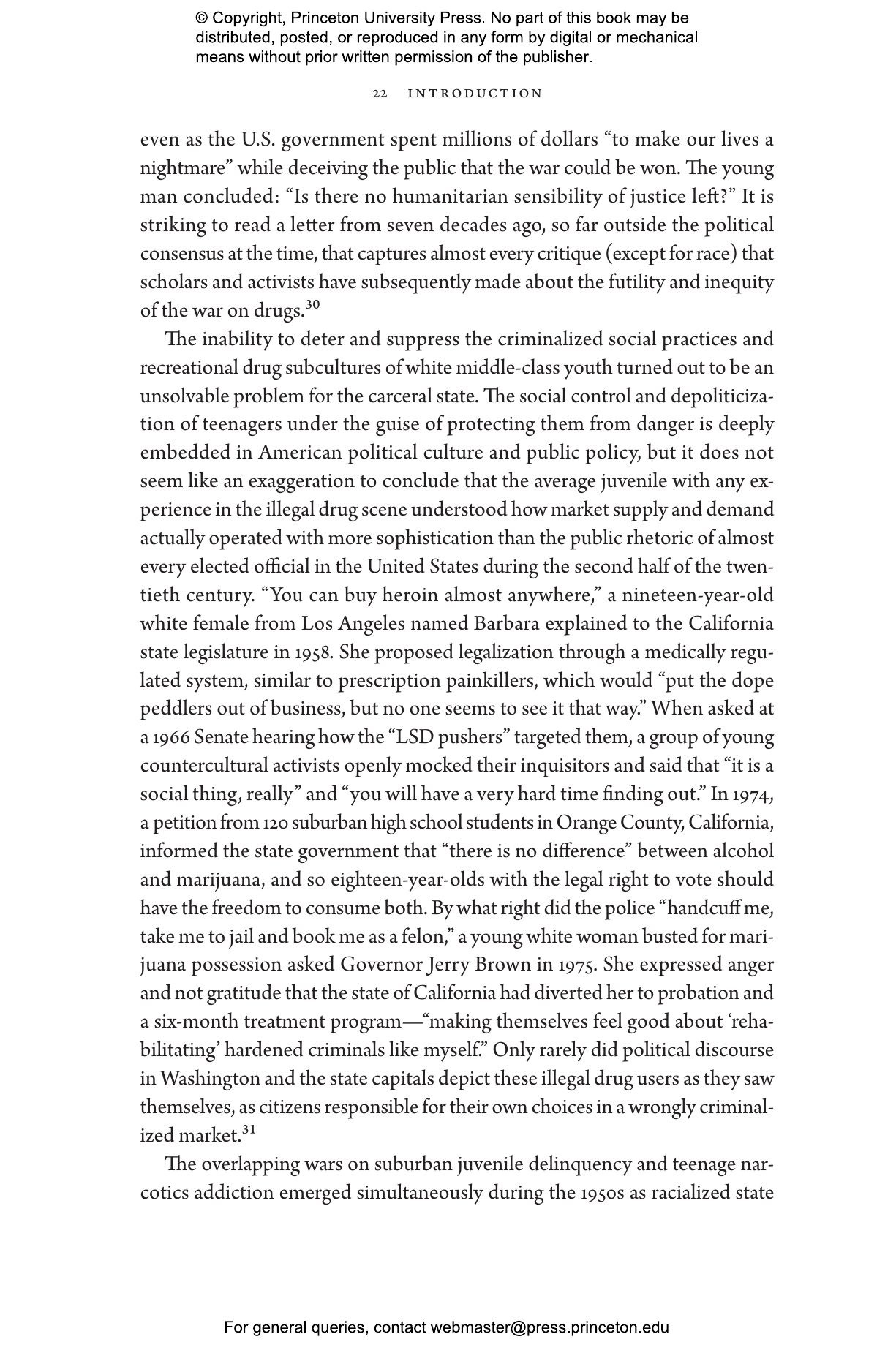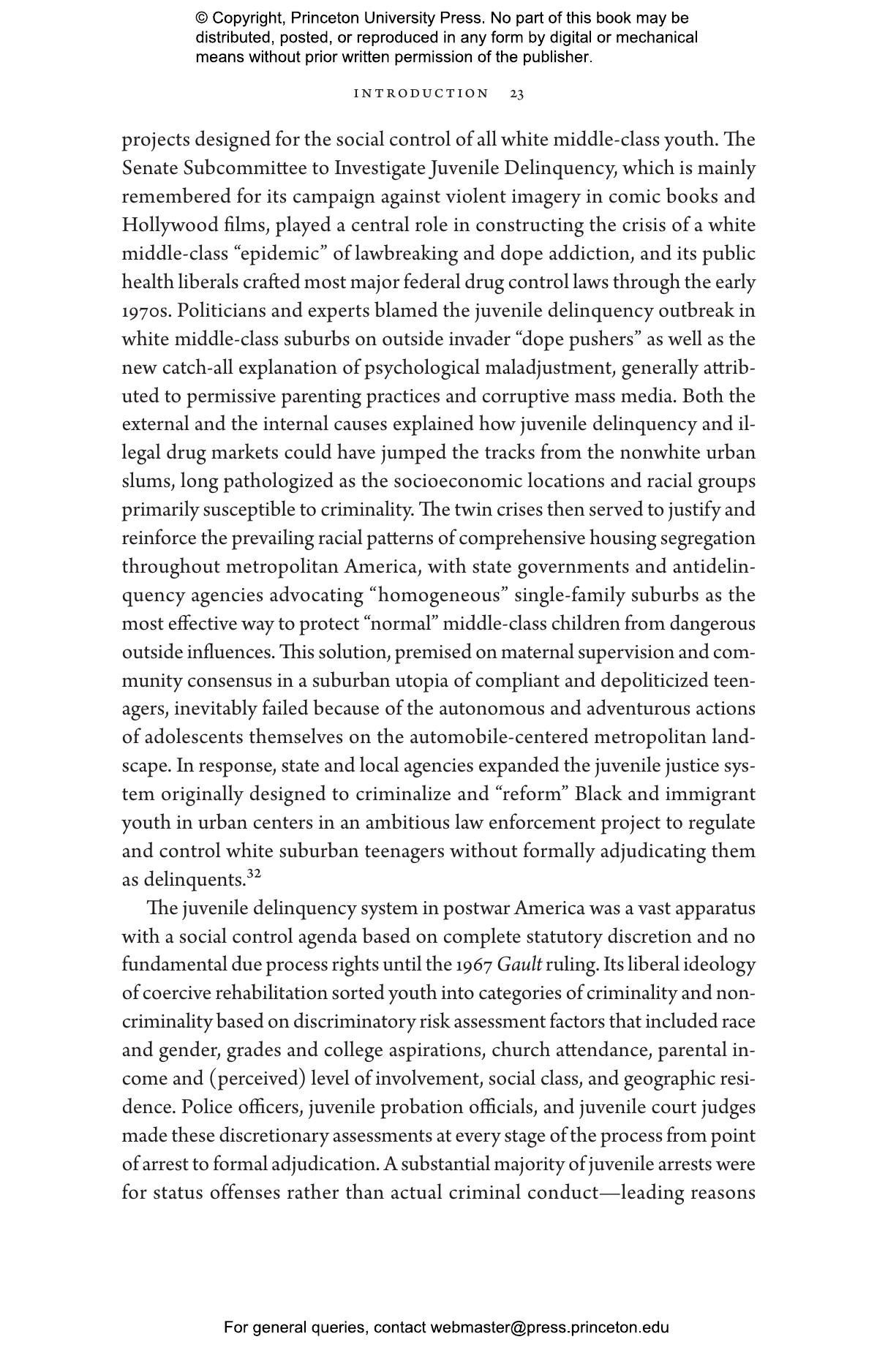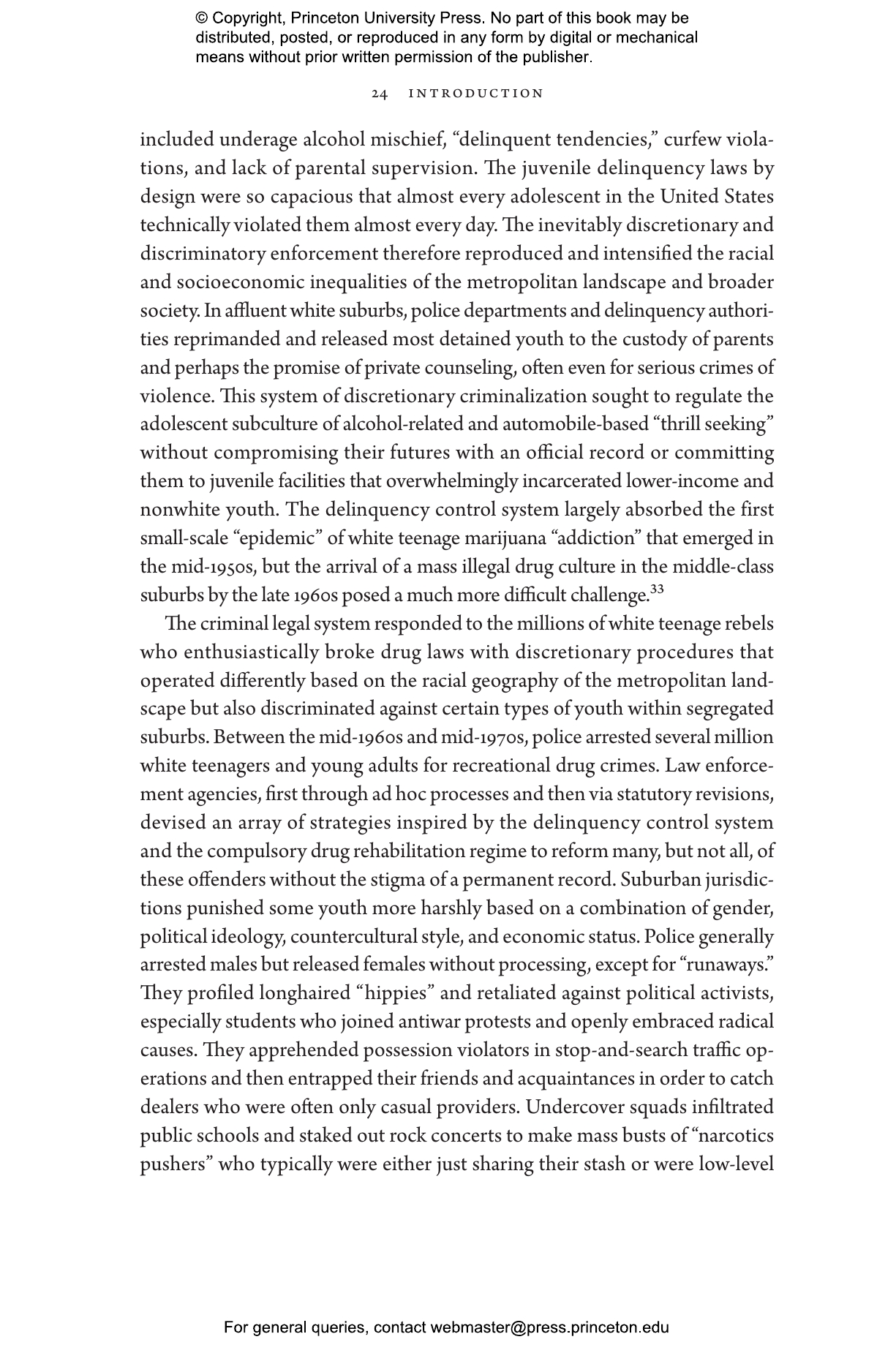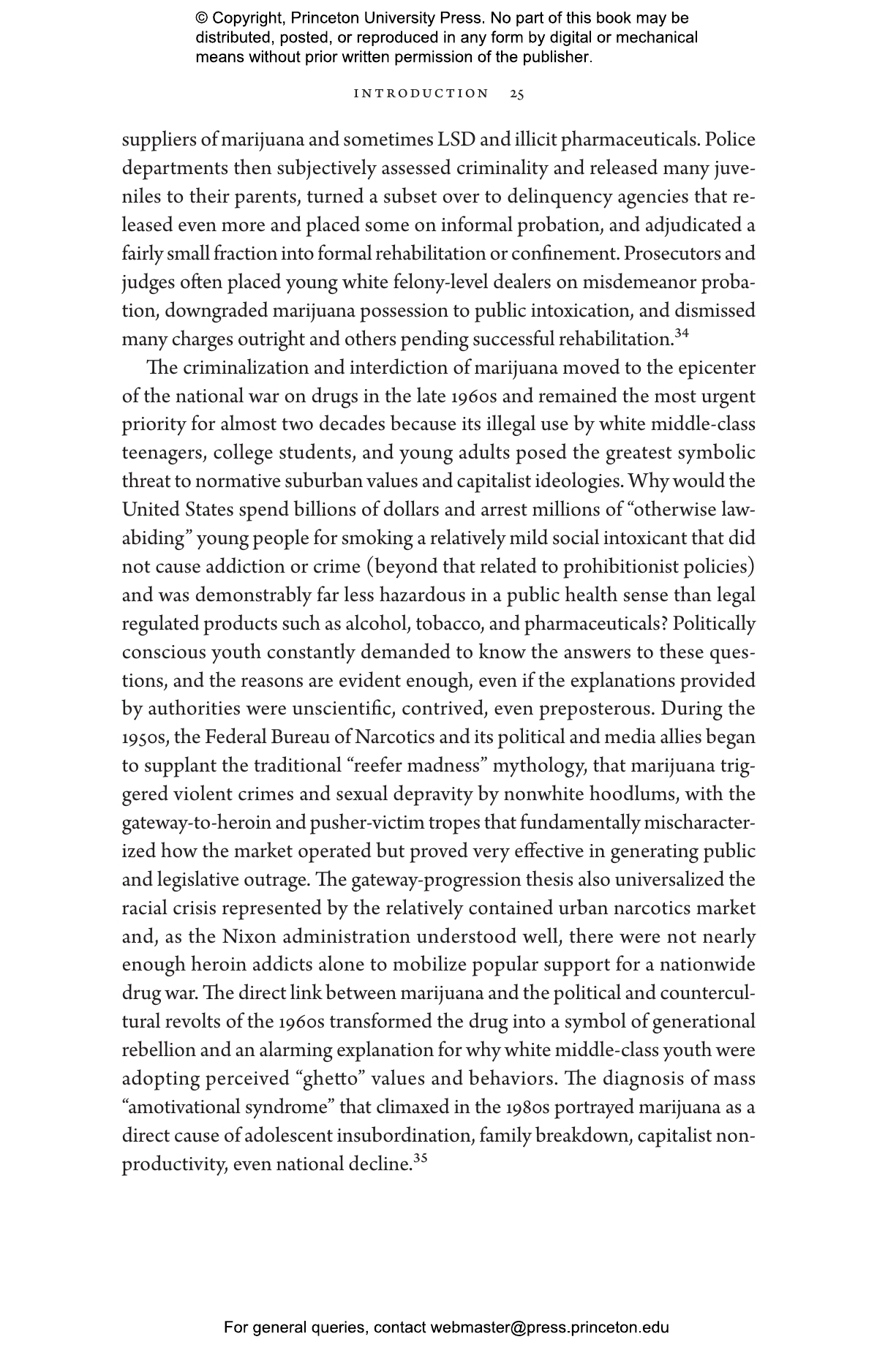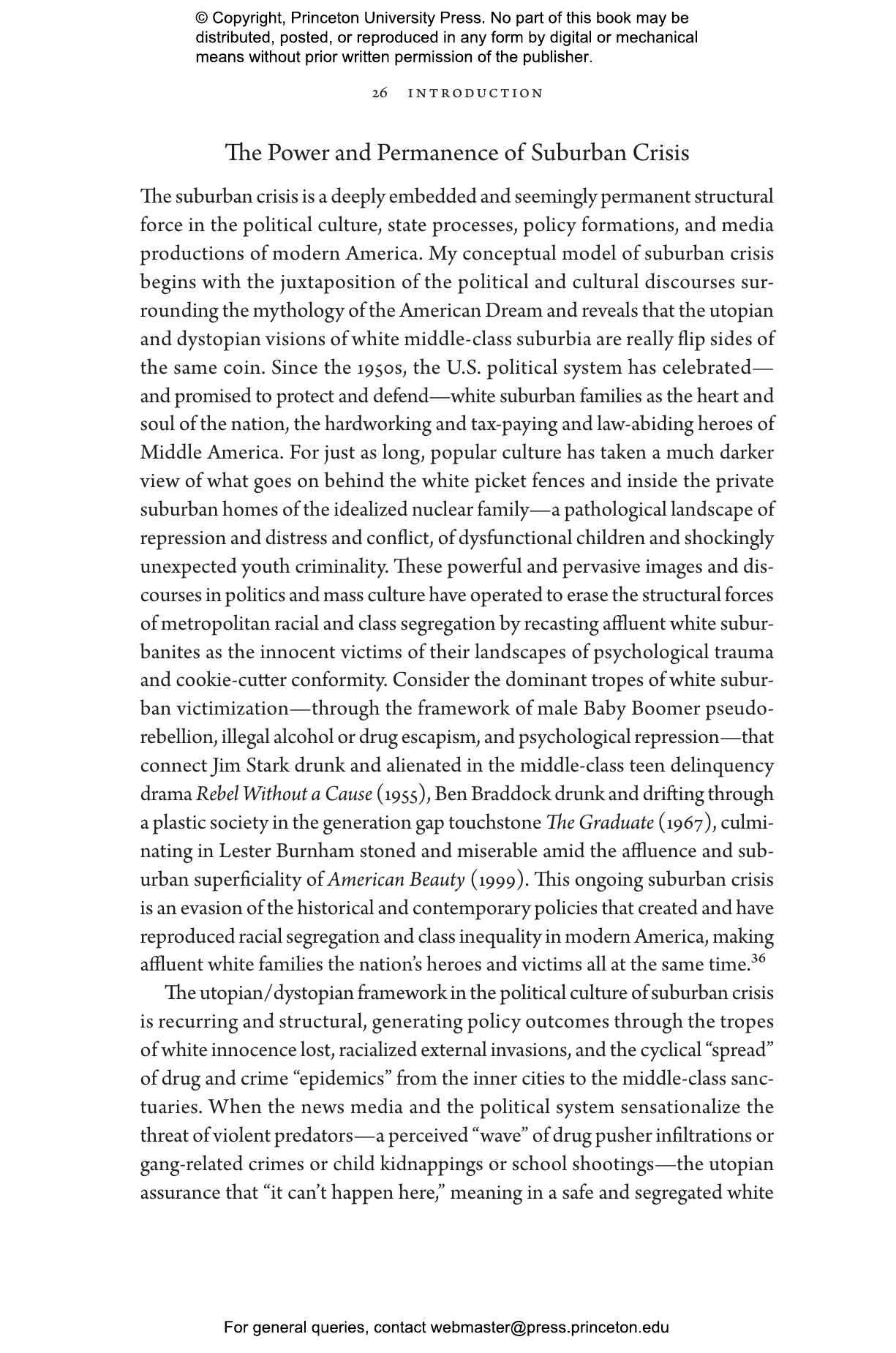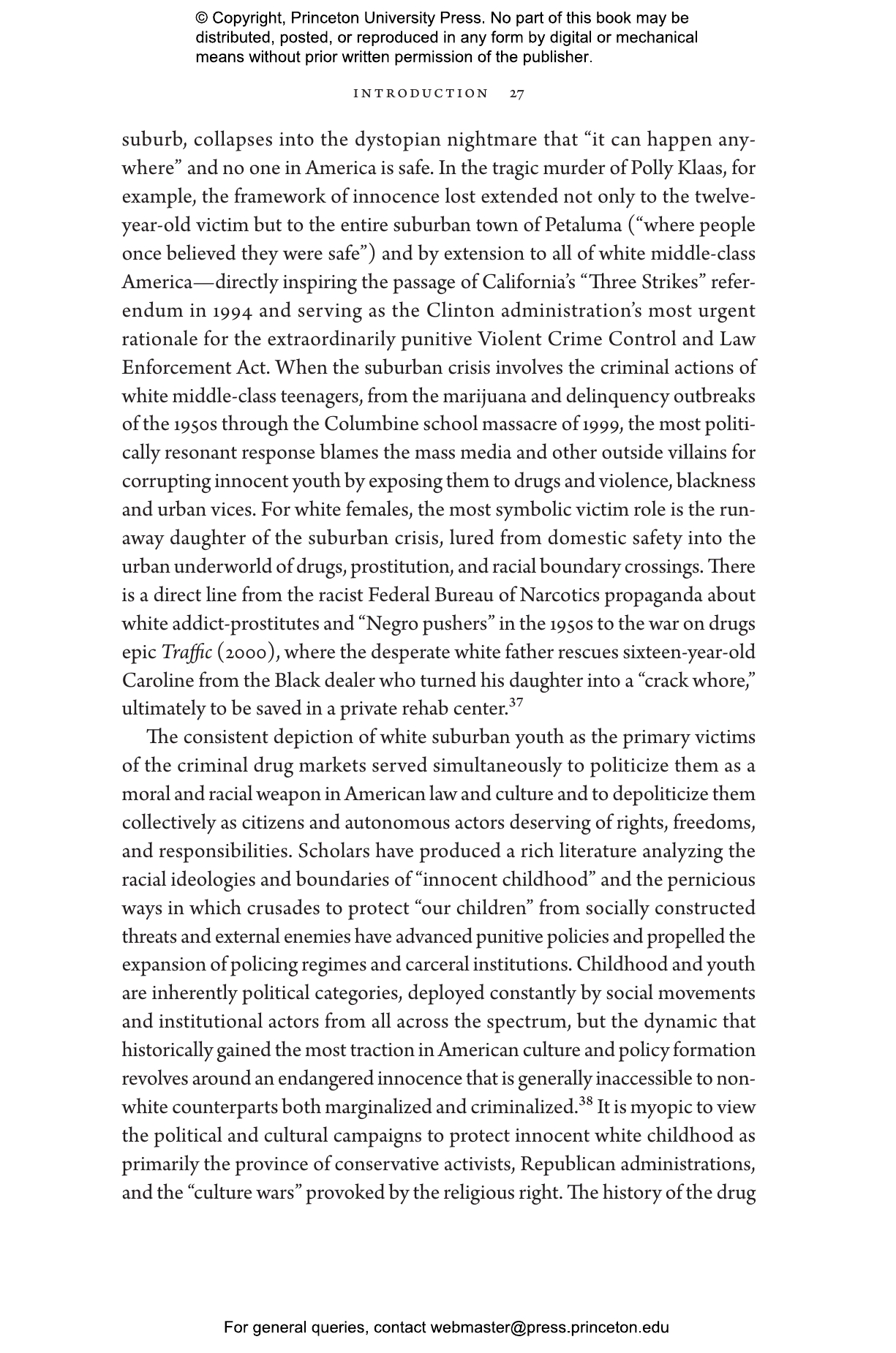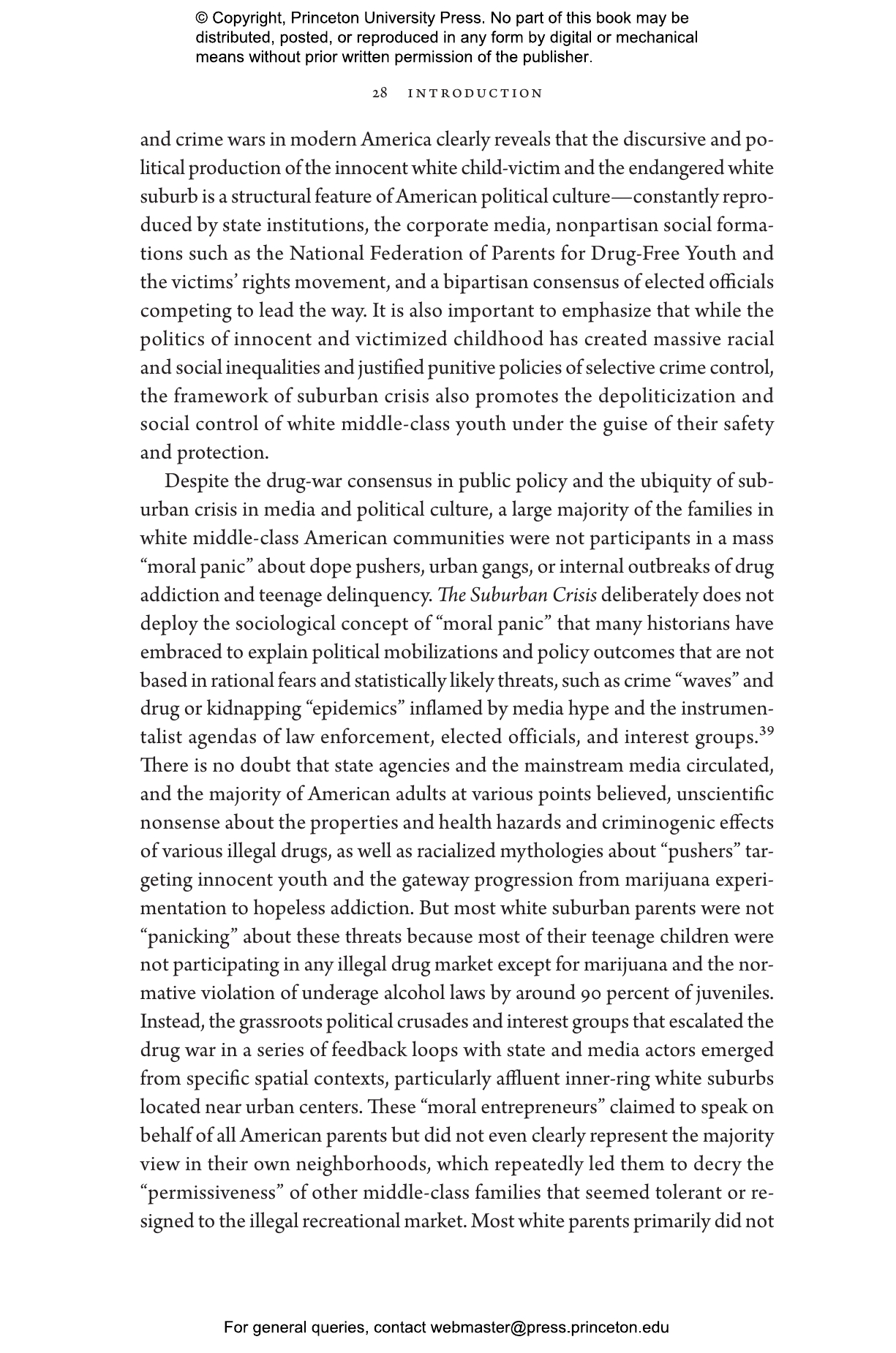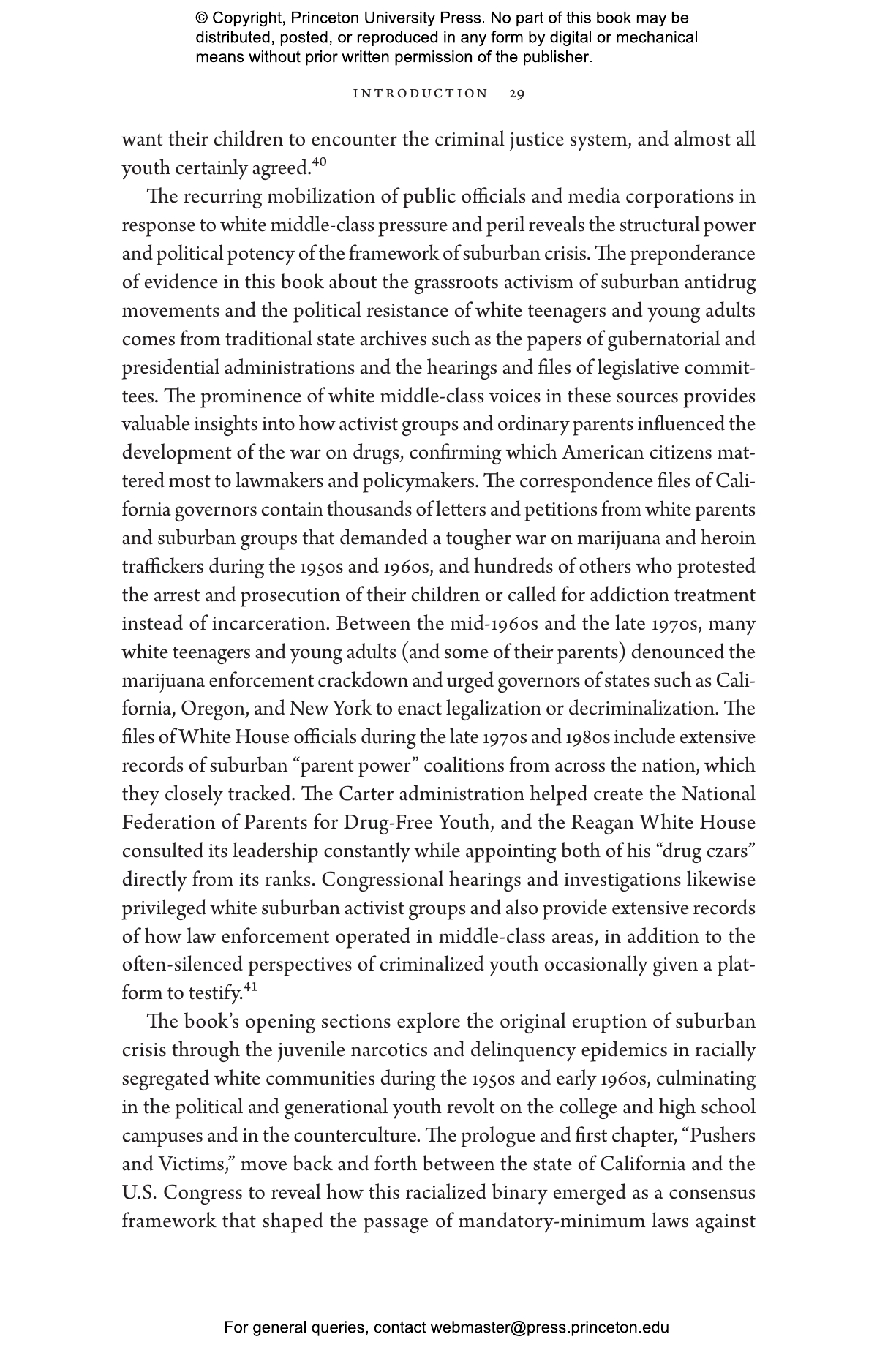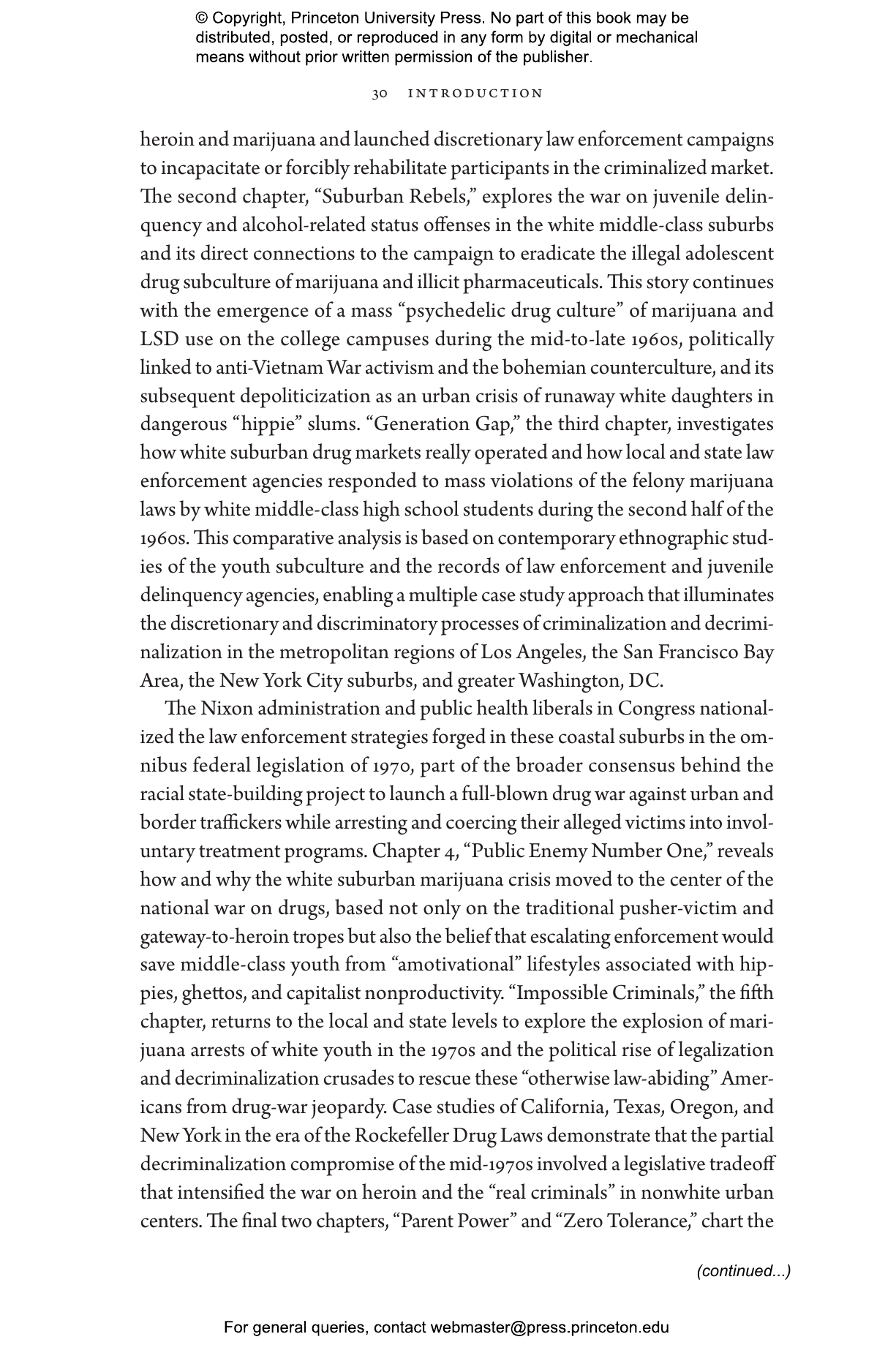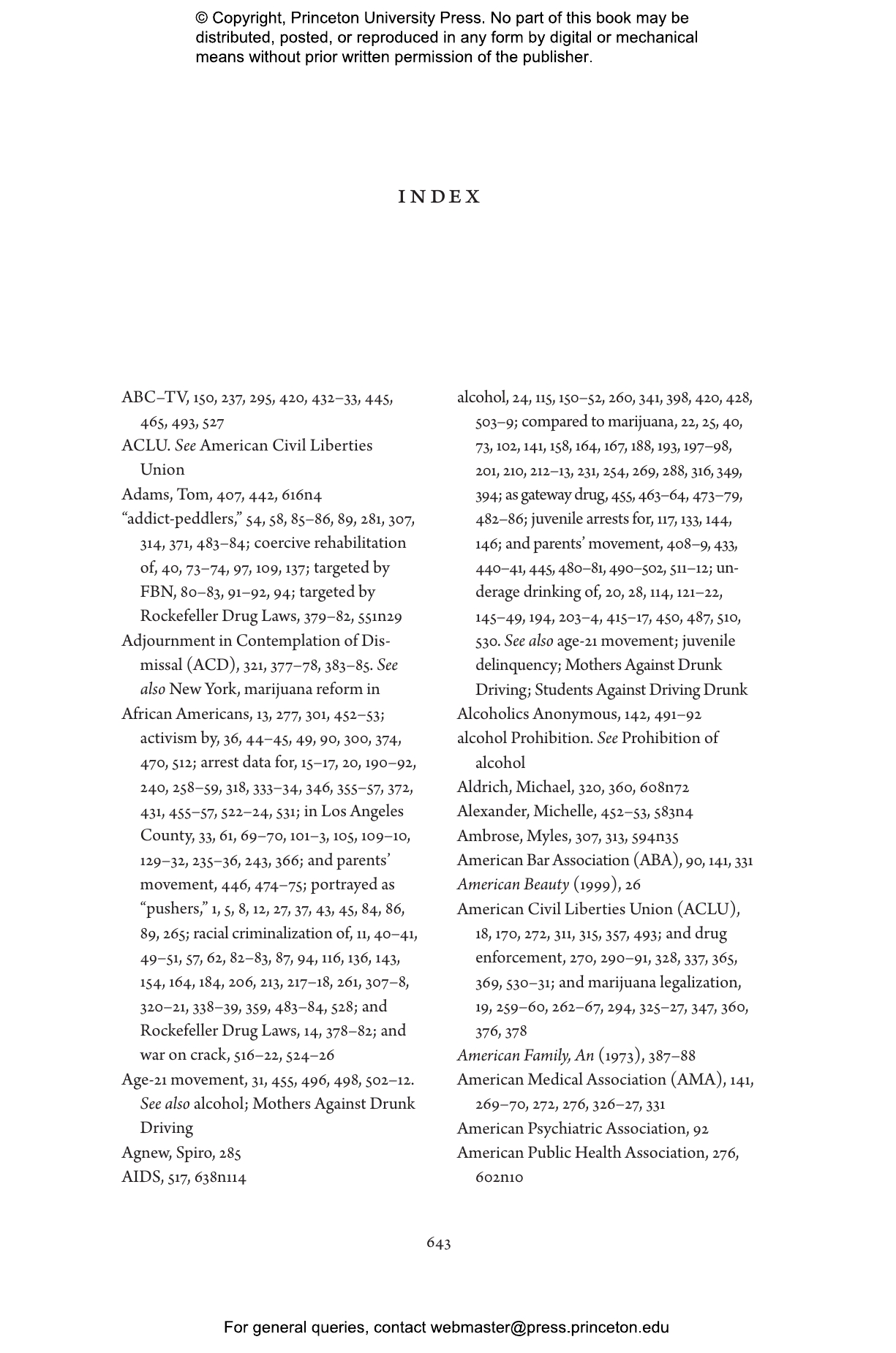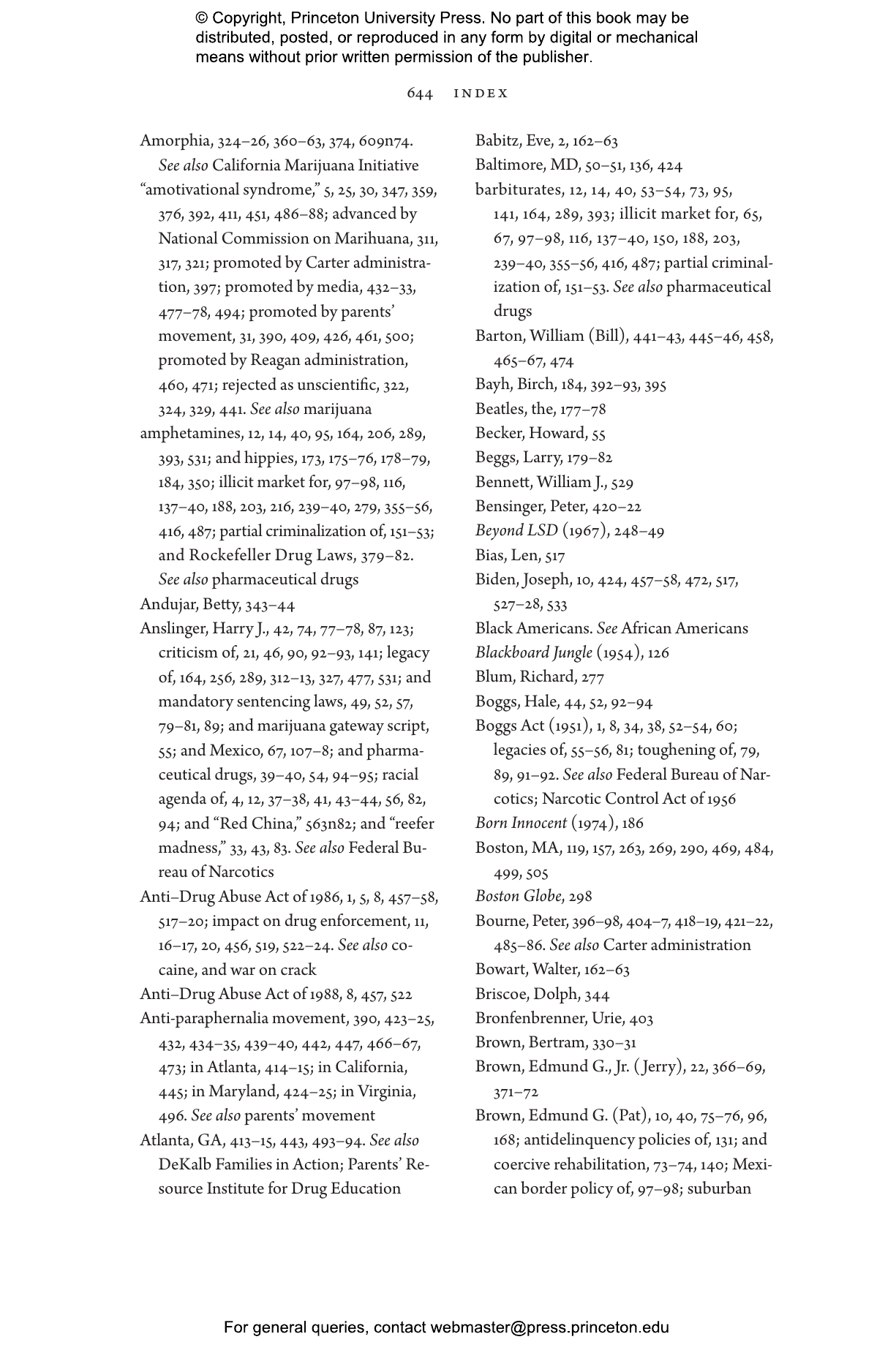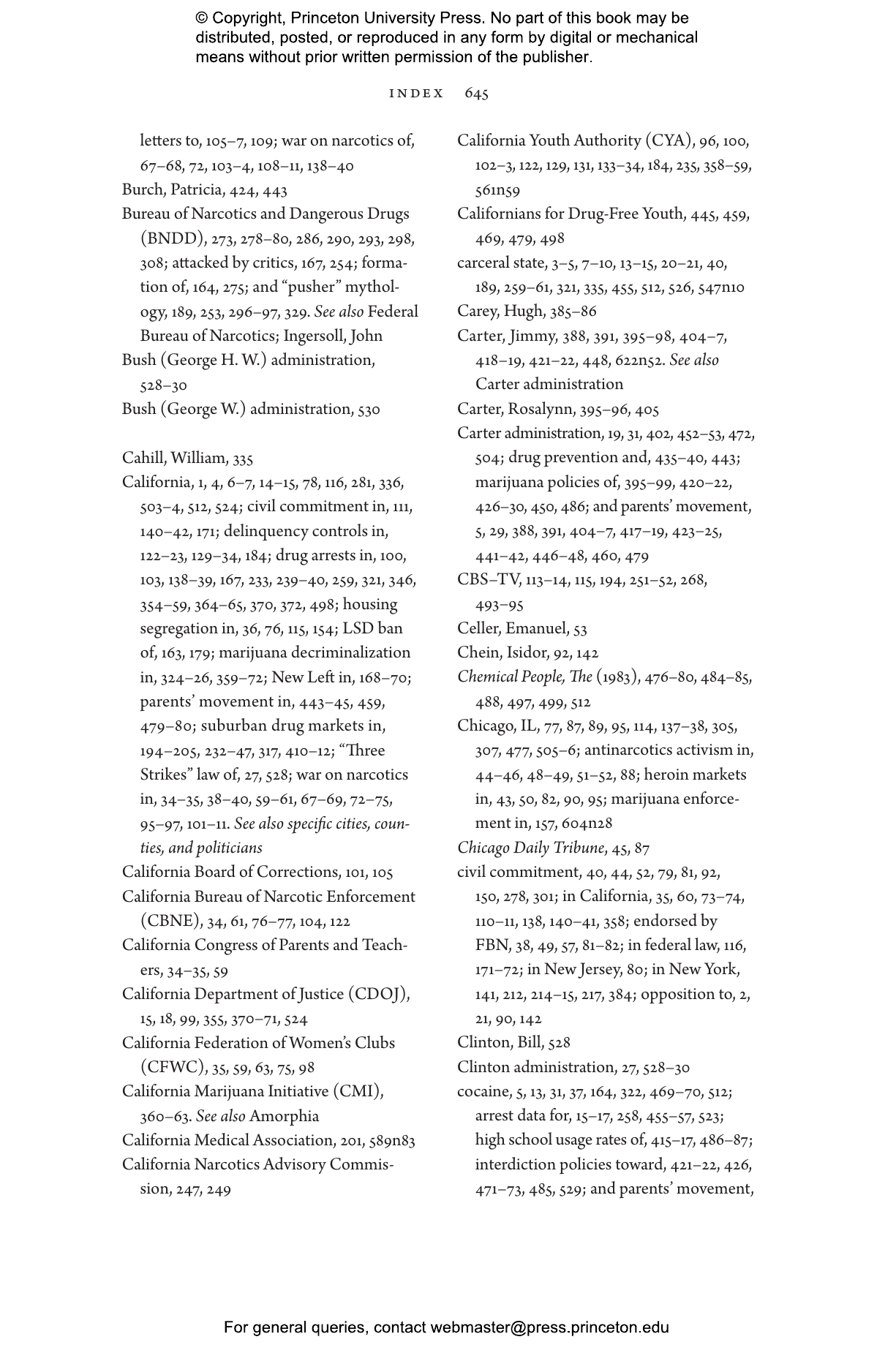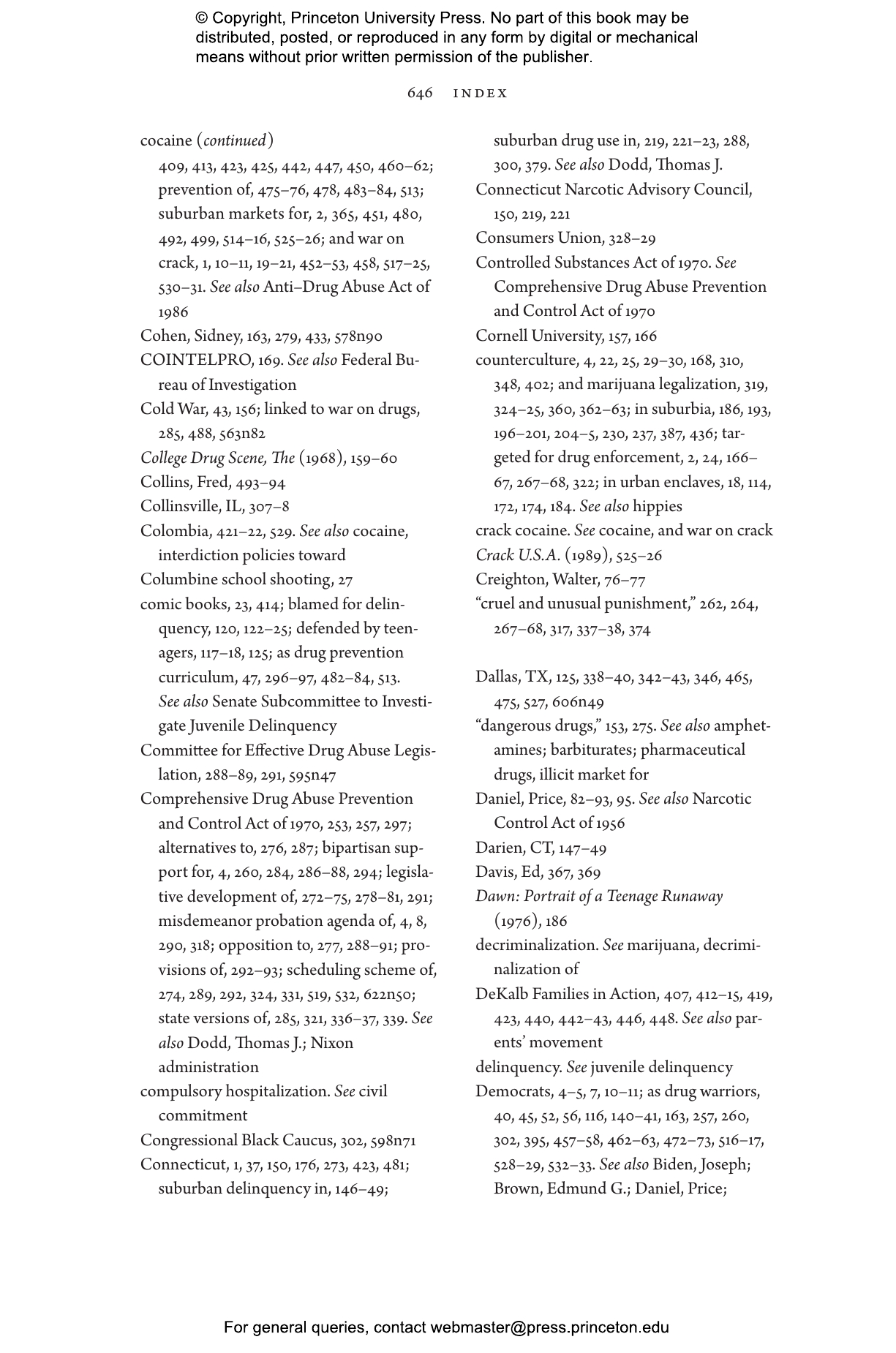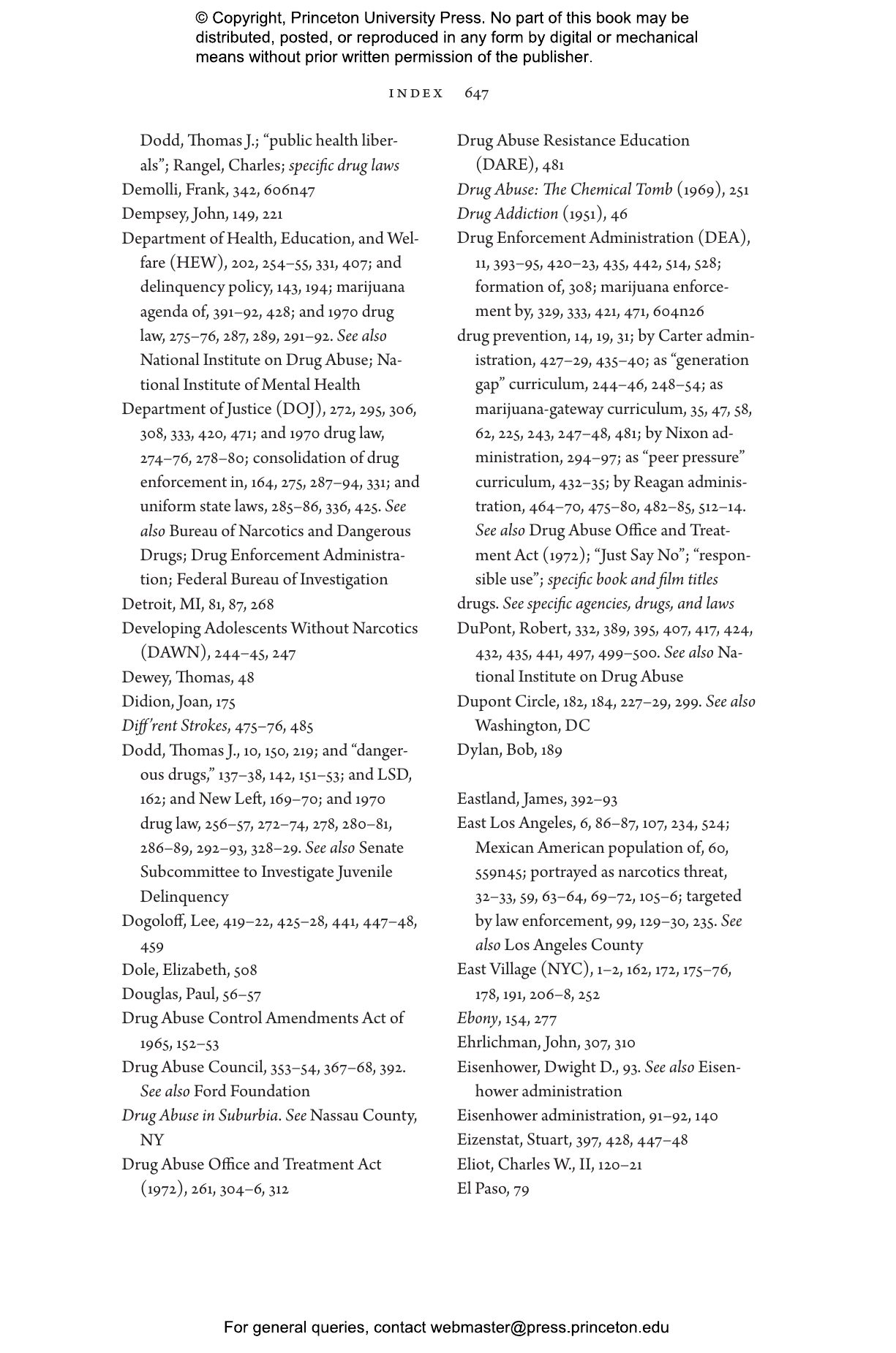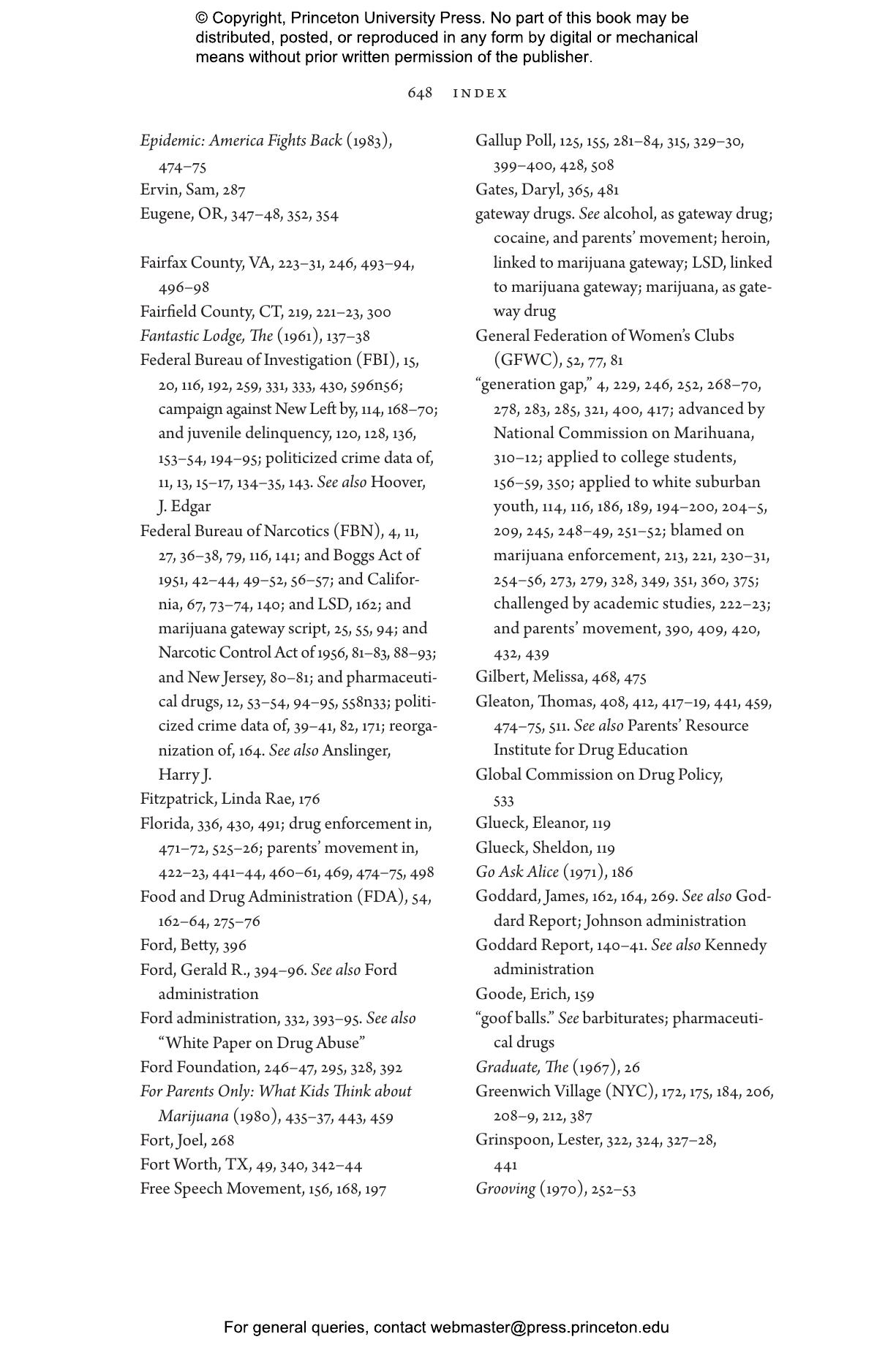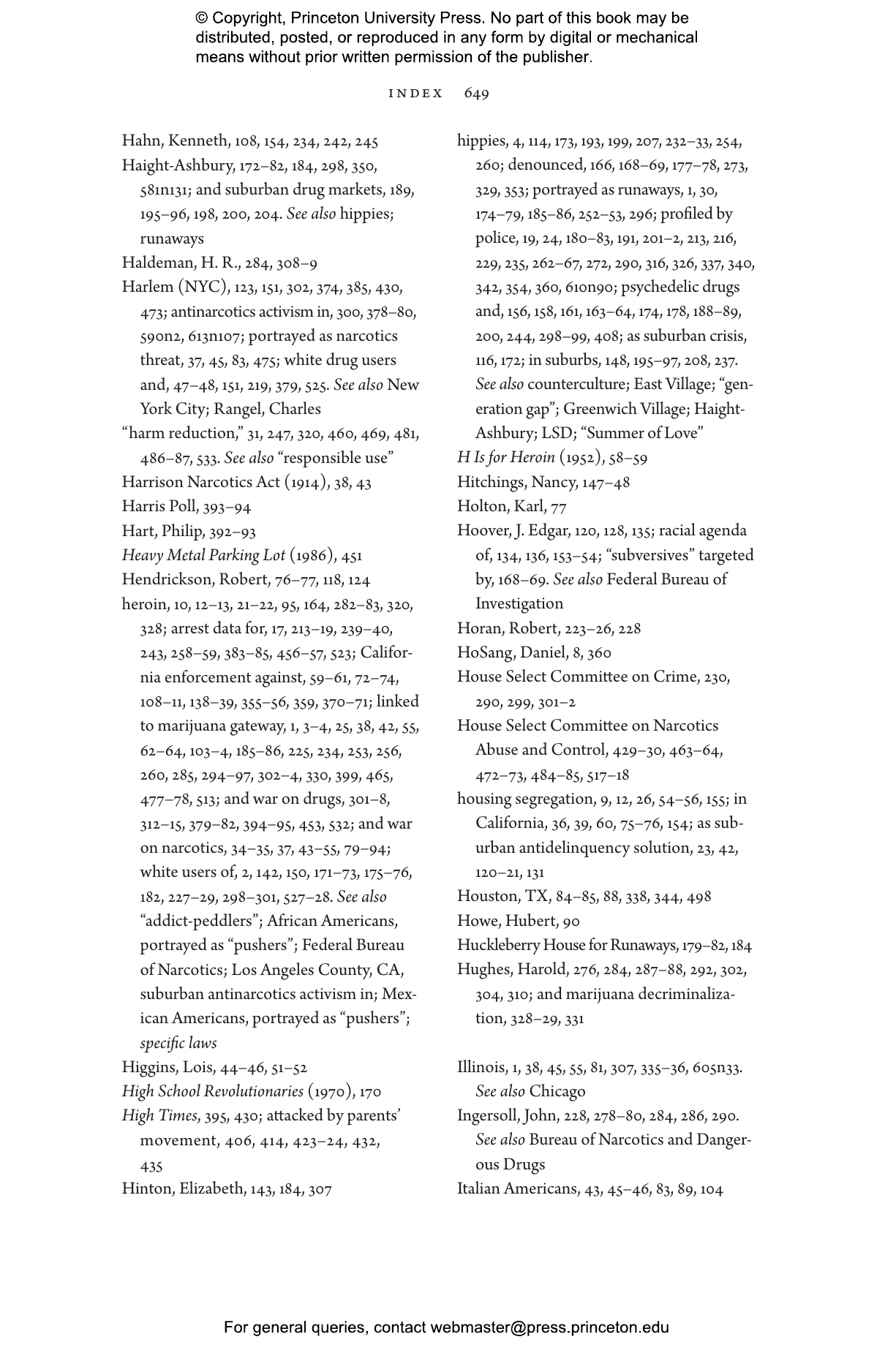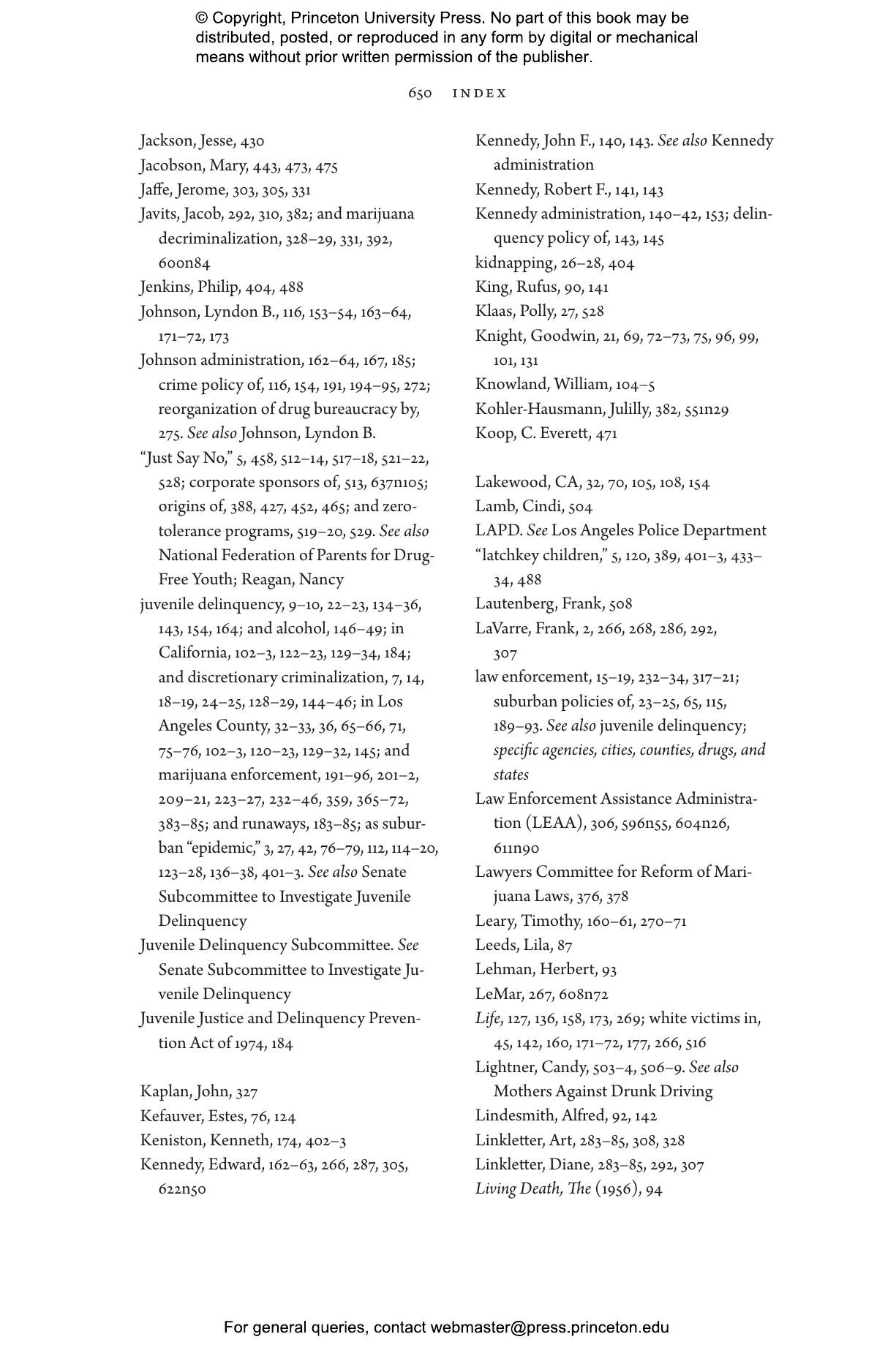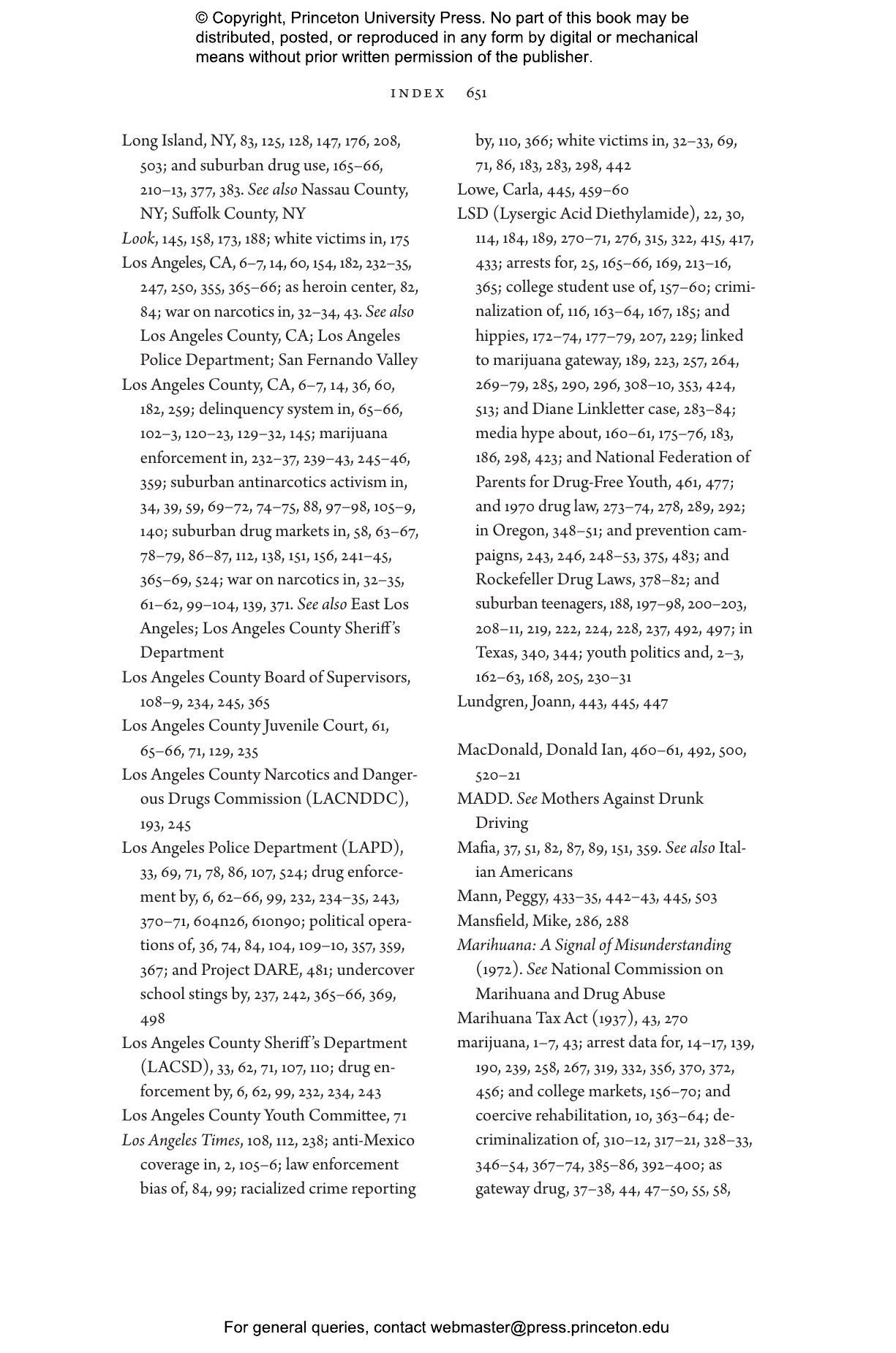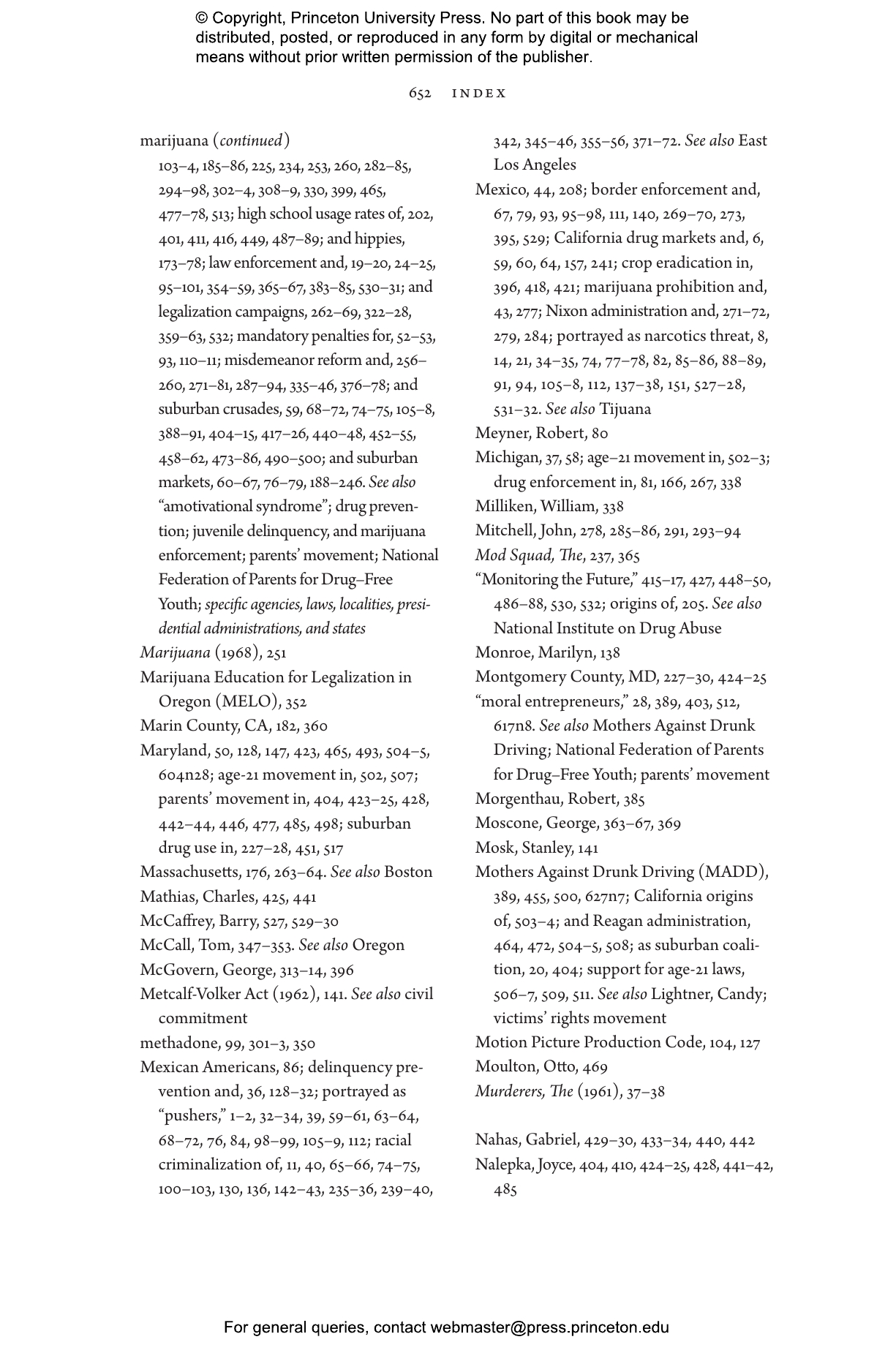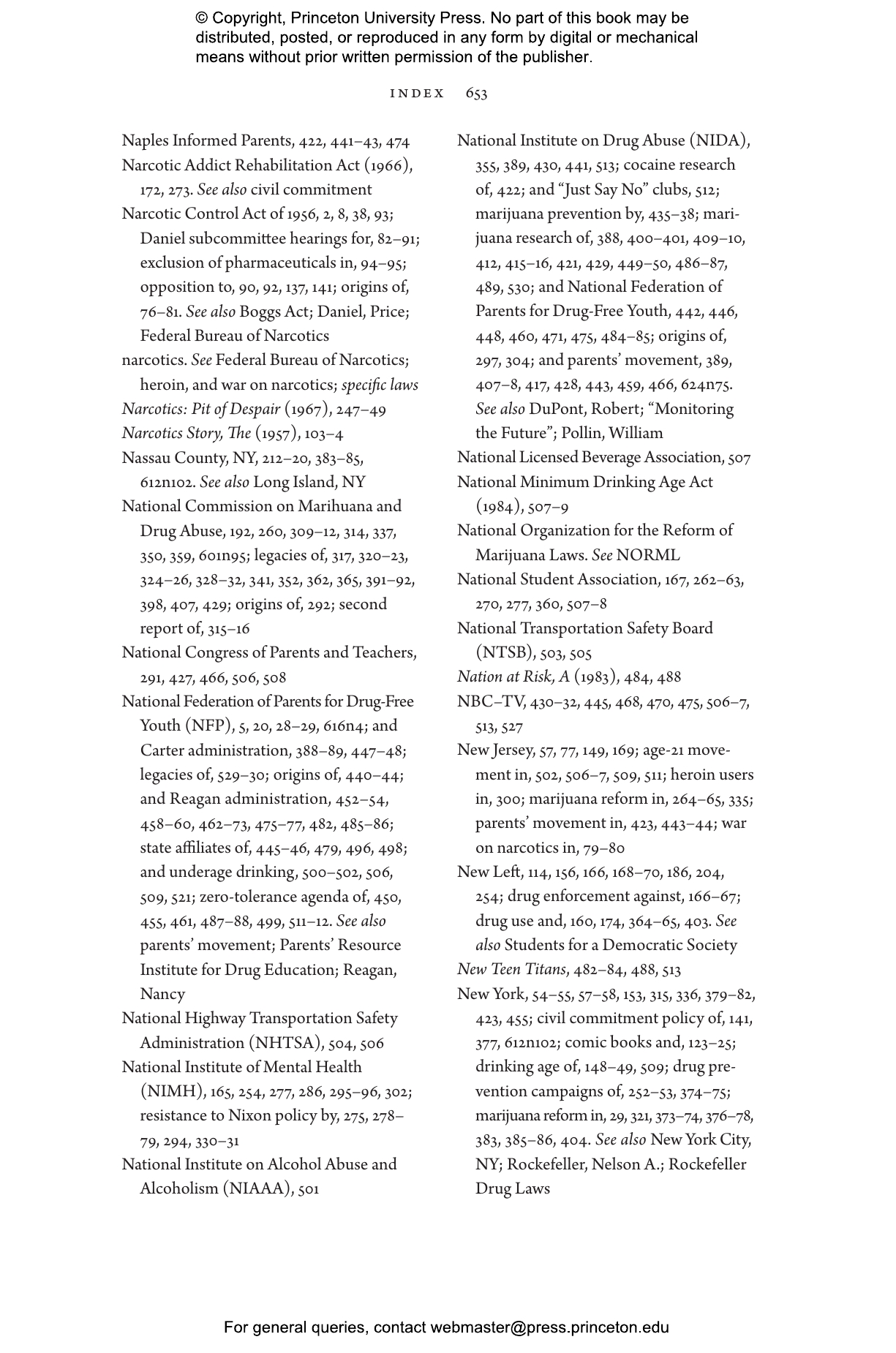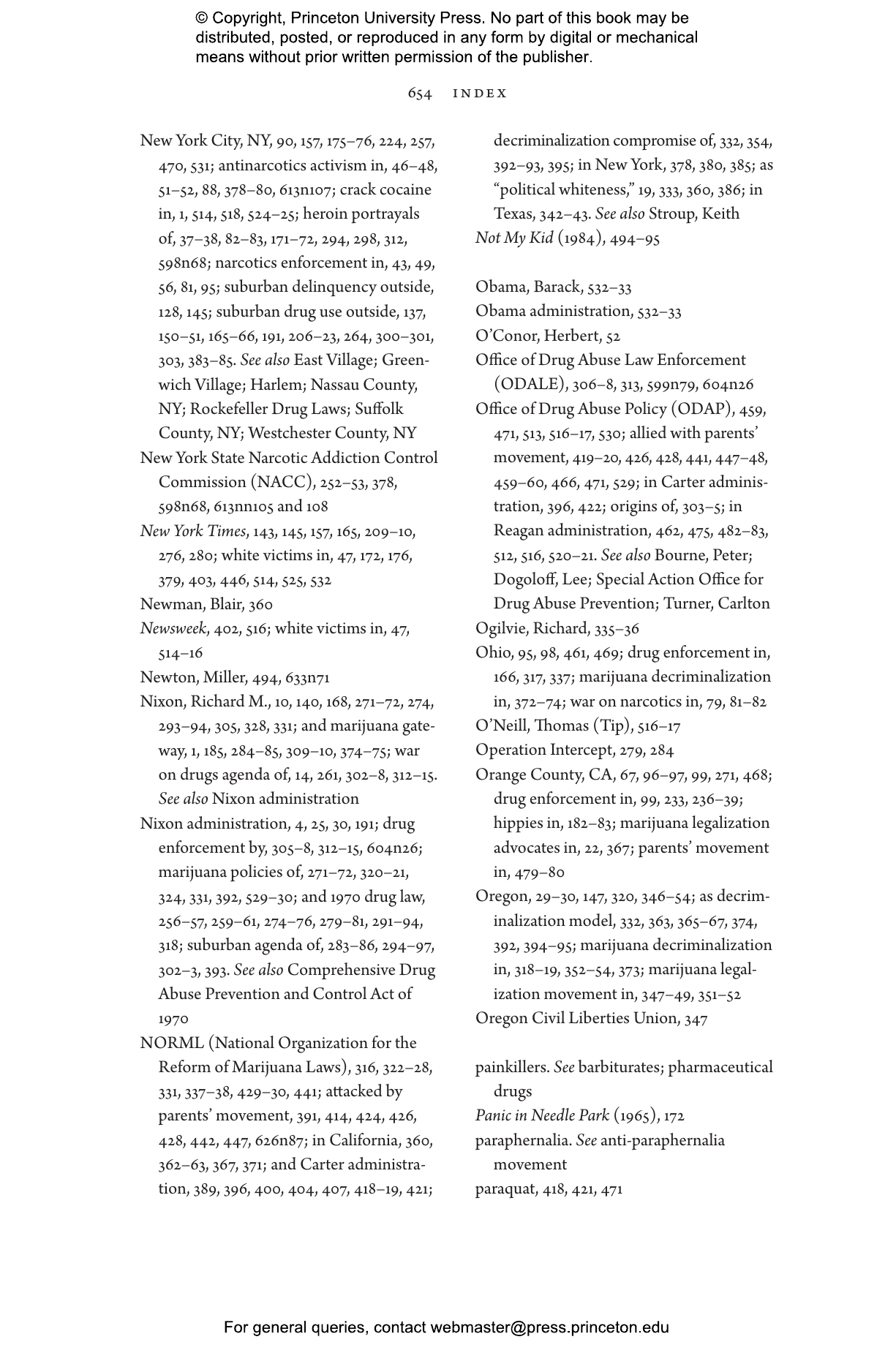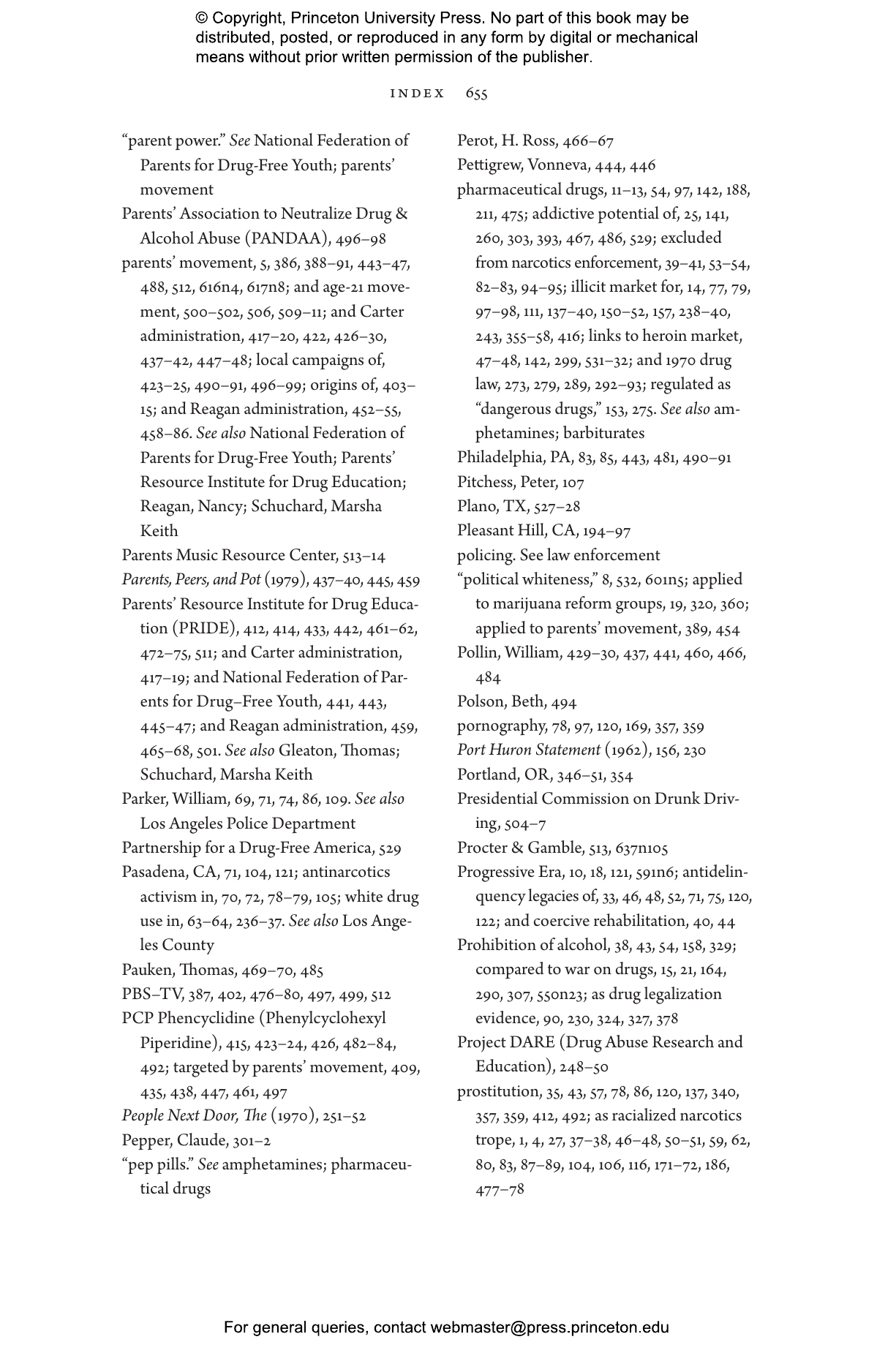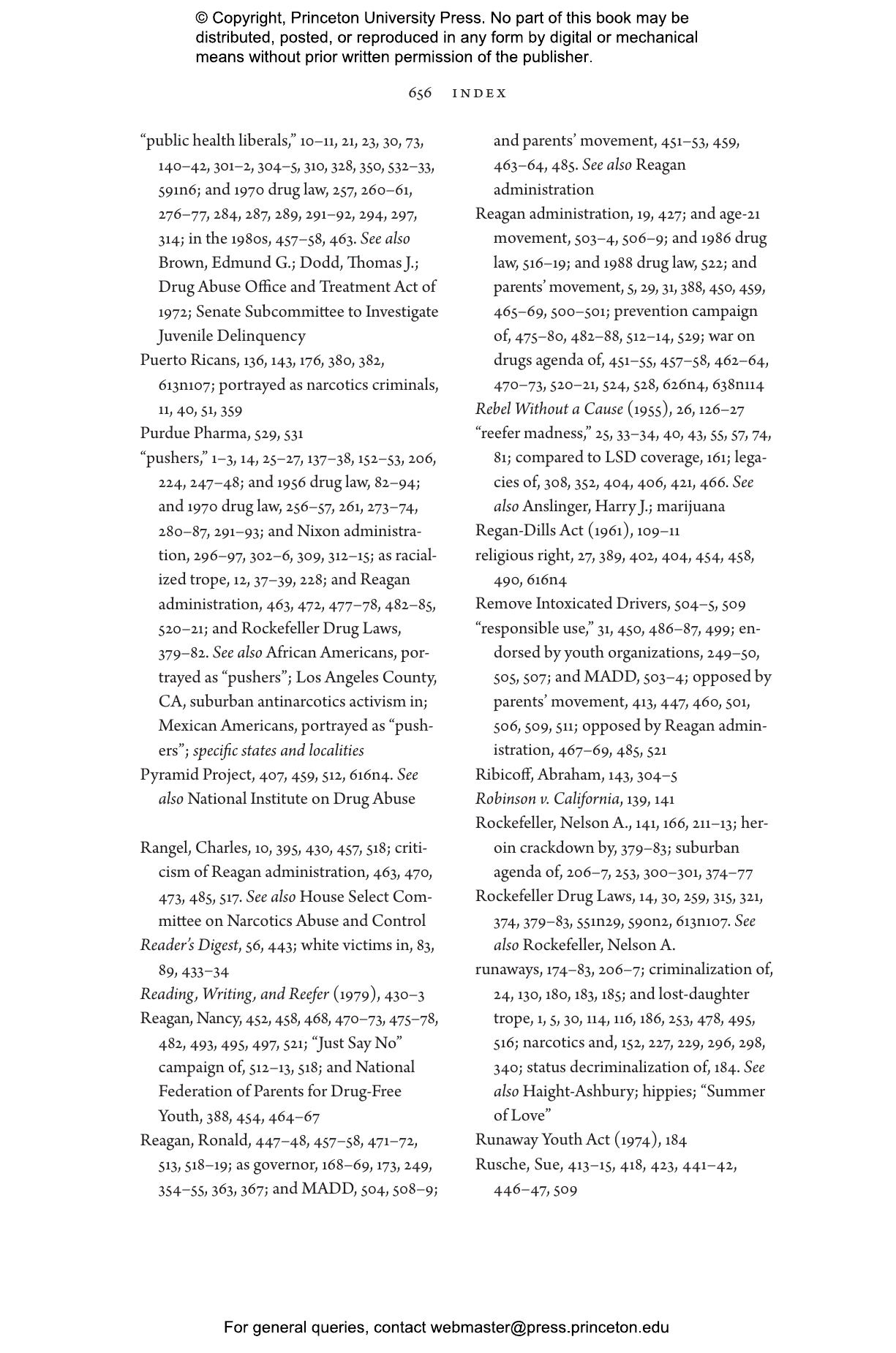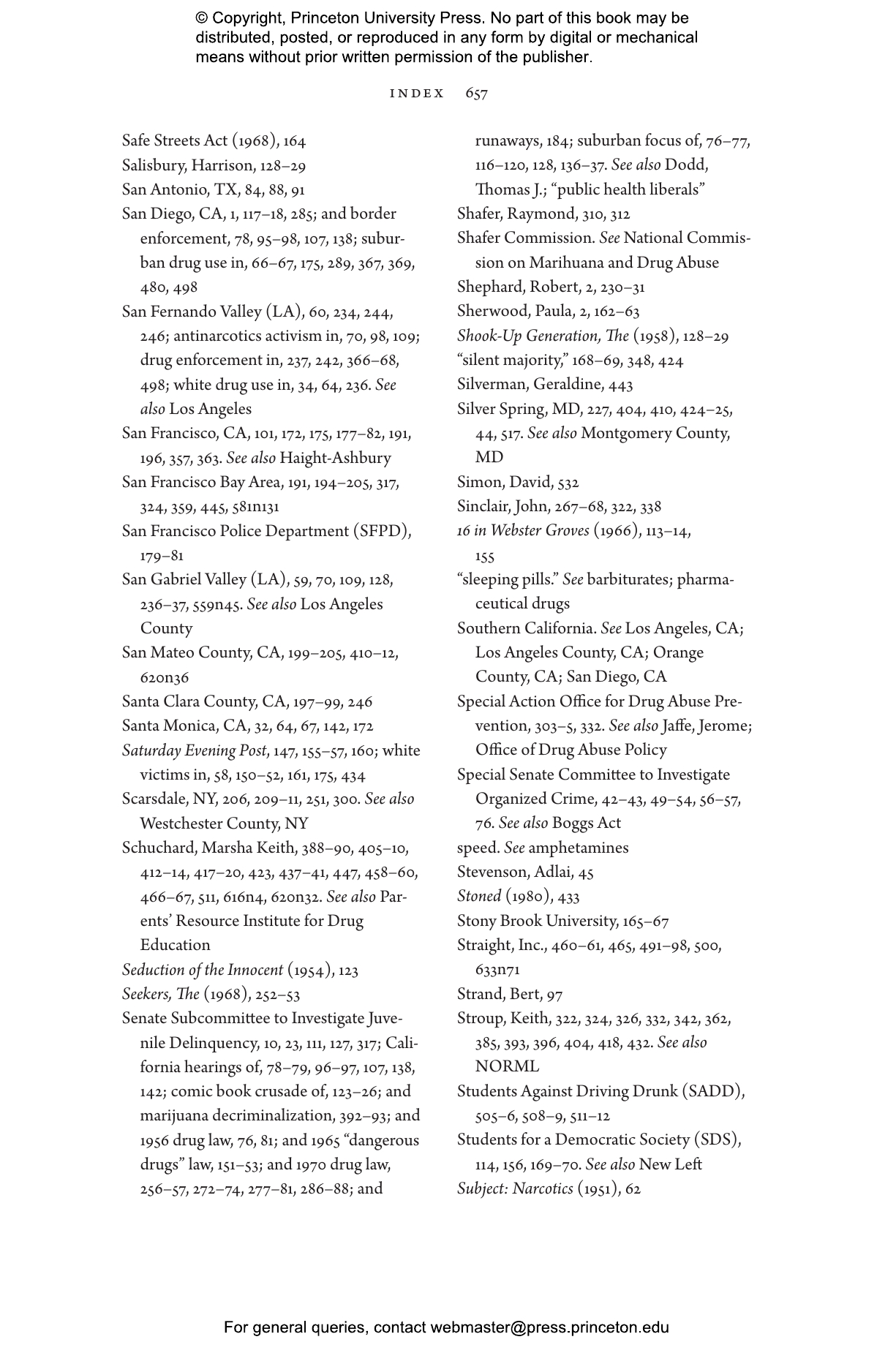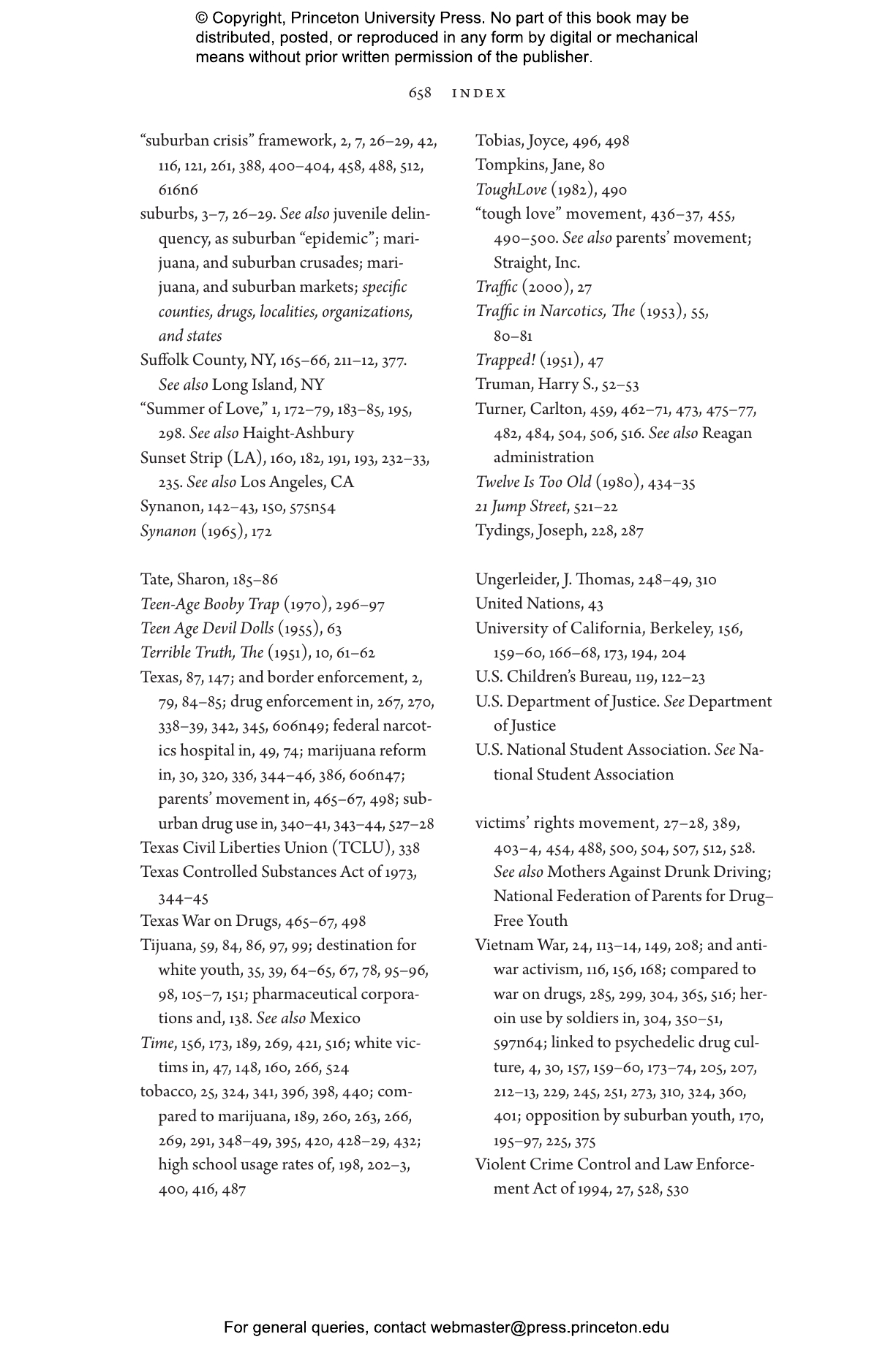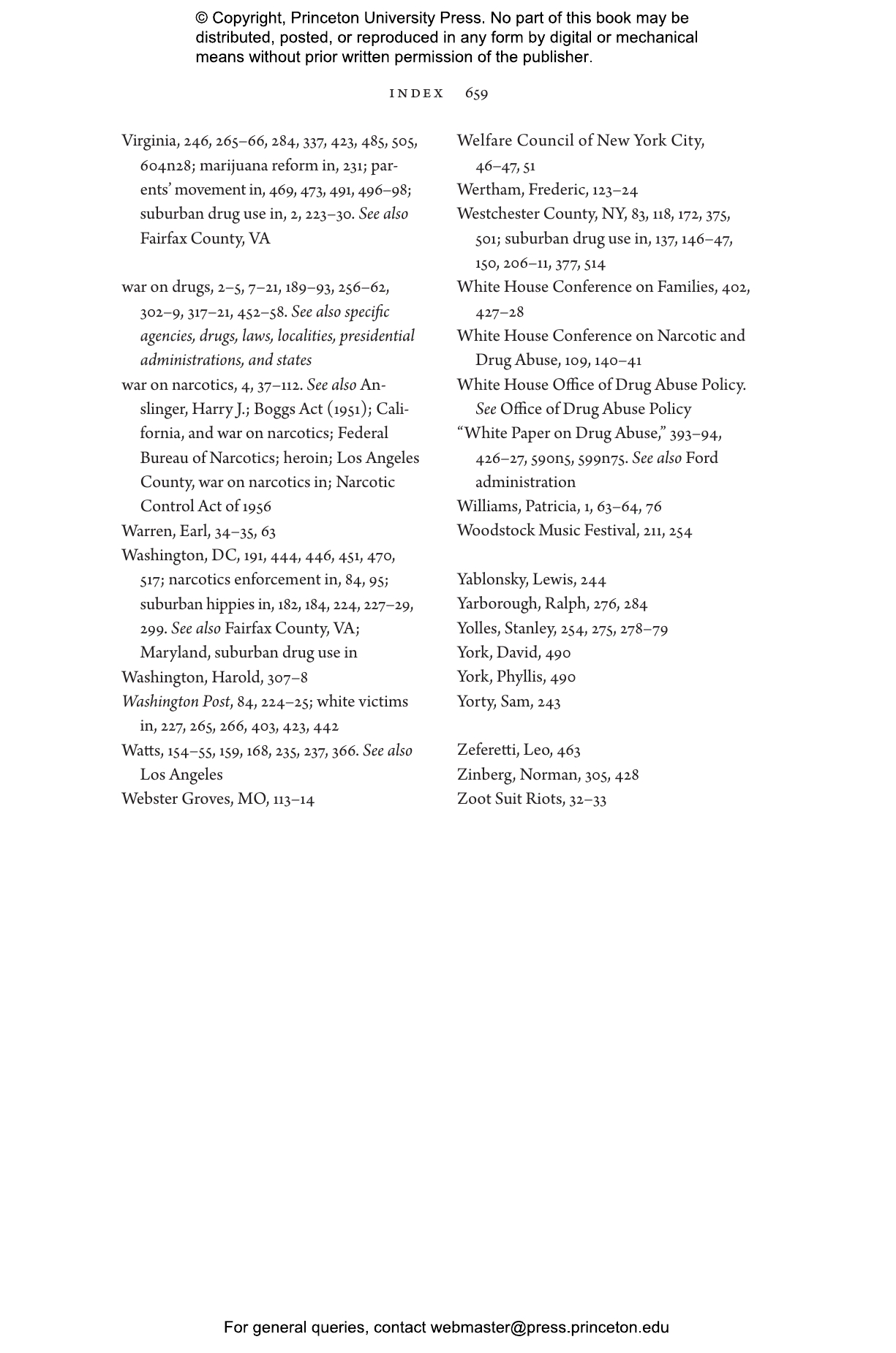Since the 1950s, the American war on drugs has positioned white middle-class youth as sympathetic victims of illegal drug markets who need rehabilitation instead of incarceration whenever they break the law. The Suburban Crisis traces how politicians, the media, and grassroots political activists crusaded to protect white families from perceived threats while criminalizing and incarcerating urban minorities, and how a troubling legacy of racial injustice continues to inform the war on drugs today.
In this incisive political history, Matthew Lassiter shows how the category of the “white middle-class victim” has been as central to the politics and culture of the drug war as racial stereotypes like the “foreign trafficker,” “urban pusher,” and “predatory ghetto addict.” He describes how the futile mission to safeguard and control white suburban youth shaped the enactment of the nation’s first mandatory-minimum drug laws in the 1950s, and how soaring marijuana arrests of white Americans led to demands to refocus on “real criminals” in inner cities. The 1980s brought “just say no” moralizing in the white suburbs and militarized crackdowns in urban centers.
The Suburban Crisis reveals how the escalating drug war merged punitive law enforcement and coercive public health into a discriminatory system for the social control of teenagers and young adults, and how liberal and conservative lawmakers alike pursued an agenda of racialized criminalization.
Awards and Recognition
- Winner of the Kenneth Jackson Award, Urban History Association
"A history of the war on drugs that plays out in ranch houses, high school parking lots, and courtrooms from Shaker Heights, to Westchester, to Orange County. . . . Rather than aiming to limit the harmful effects of the most addictive and potential deadly substances, Lassiter proposes, the war on drugs focused relentlessly on protecting white youth from the fictional perils of cannabis."—Claire Potter, New Republic
"[a] groundbreaking...book.... By reorienting the traditional narrative of the drug war—away from the cities where the war was at its most punitive and to the suburbs where the war was designed to be preventive—Lassiter adds needed political and spatial nuance to the history of the war on drugs"—Max Felker-Kantor, Public Books
"[a] magisterial new book"—Charlotte Rosen, n+1
“The Suburban Crisis offers an original and deeply researched account of the war on drugs that centers white suburban drug users, Black and Latino dealers, and fearmongering racial tropes about drug trafficking. It is an extraordinary work of scholarship full of insights about the racial politics of, and bipartisan support for, the machinery of mass incarceration.”—Tomiko Brown-Nagin, author of Civil Rights Queen: Constance Baker Motley and the Struggle for Equality
“Lassiter shows how the racial disparities within the criminal legal system are not an unforeseen accident but instead are, by design, created through bipartisan consensus to protect middle-class white victimhood. More than just a book about the war on drugs, The Suburban Crisis is a field-defining revelation that changes the way we understand postwar urban history and the contours of inequality in America.”—Elizabeth Hinton, author of From the War on Poverty to the War on Crime
“The Suburban Crisis is a masterpiece—political history at its best. Drawing on a remarkable amount of rigorous and exhaustive archival research, it is a forceful, nuanced, and gripping chronicle of the nation’s tragic campaign to control drug use since the 1950s.”—Julilly Kohler-Hausmann, author of Getting Tough: Welfare and Imprisonment in 1970s America
“The Suburban Crisis is a myth-shattering masterpiece. By tearing down artificial dividing lines that have long shaped the conventional narrative—Republican versus Democrat, urban versus suburban, rehabilitation versus incarceration—Matthew Lassiter shows us the full picture of the war on drugs for the first time. This brilliant book is an absolute must-read.”—Kevin M. Kruse, Princeton University
“Matthew Lassiter’s The Suburban Crisis is a riveting, counterintuitive analysis of the impact of the war on drugs on the course of US history in the second half of the twentieth century. Deeply researched and powerfully written, the book upends easy partisan analysis of the growth of the prison state.”—Kim Phillips-Fein, Columbia University
